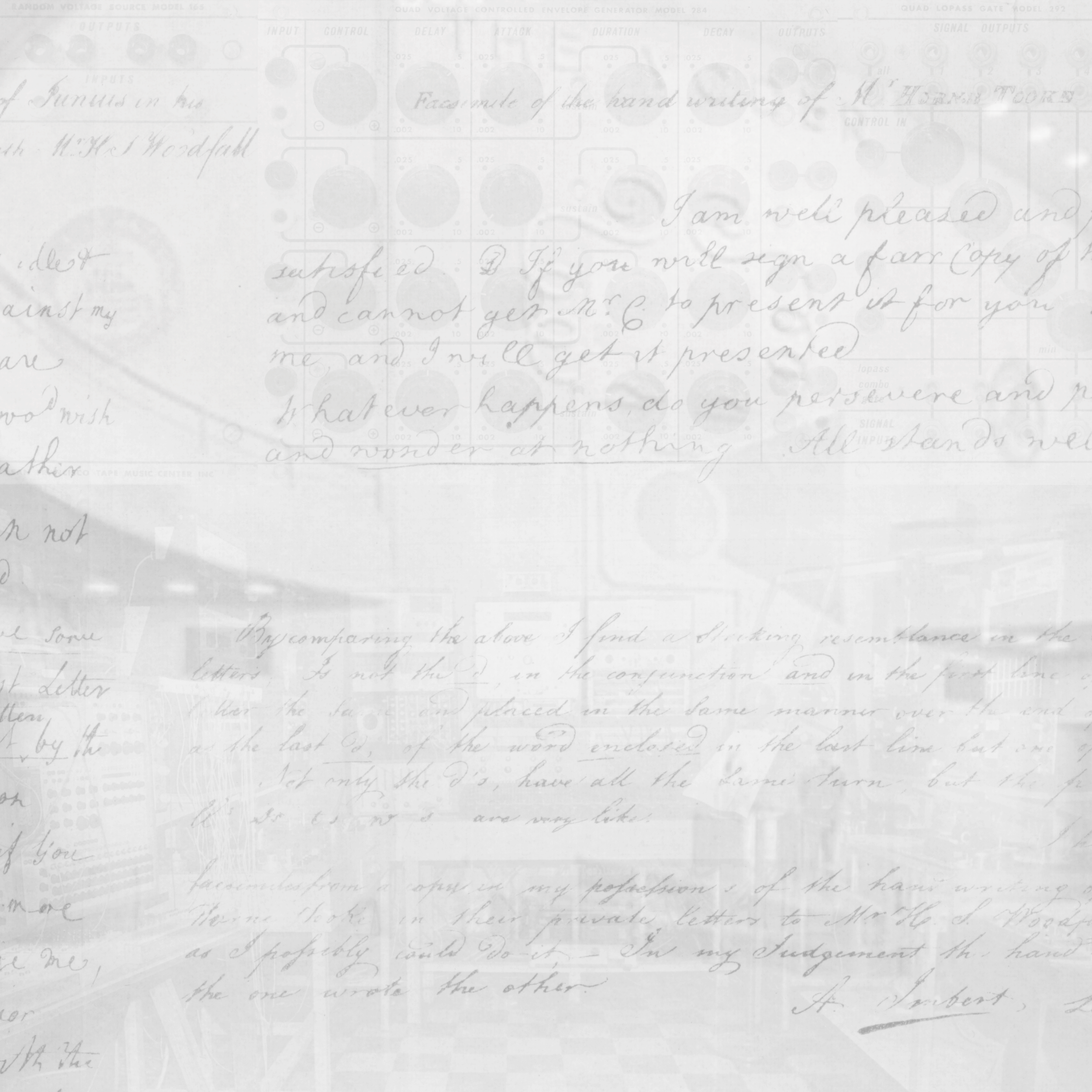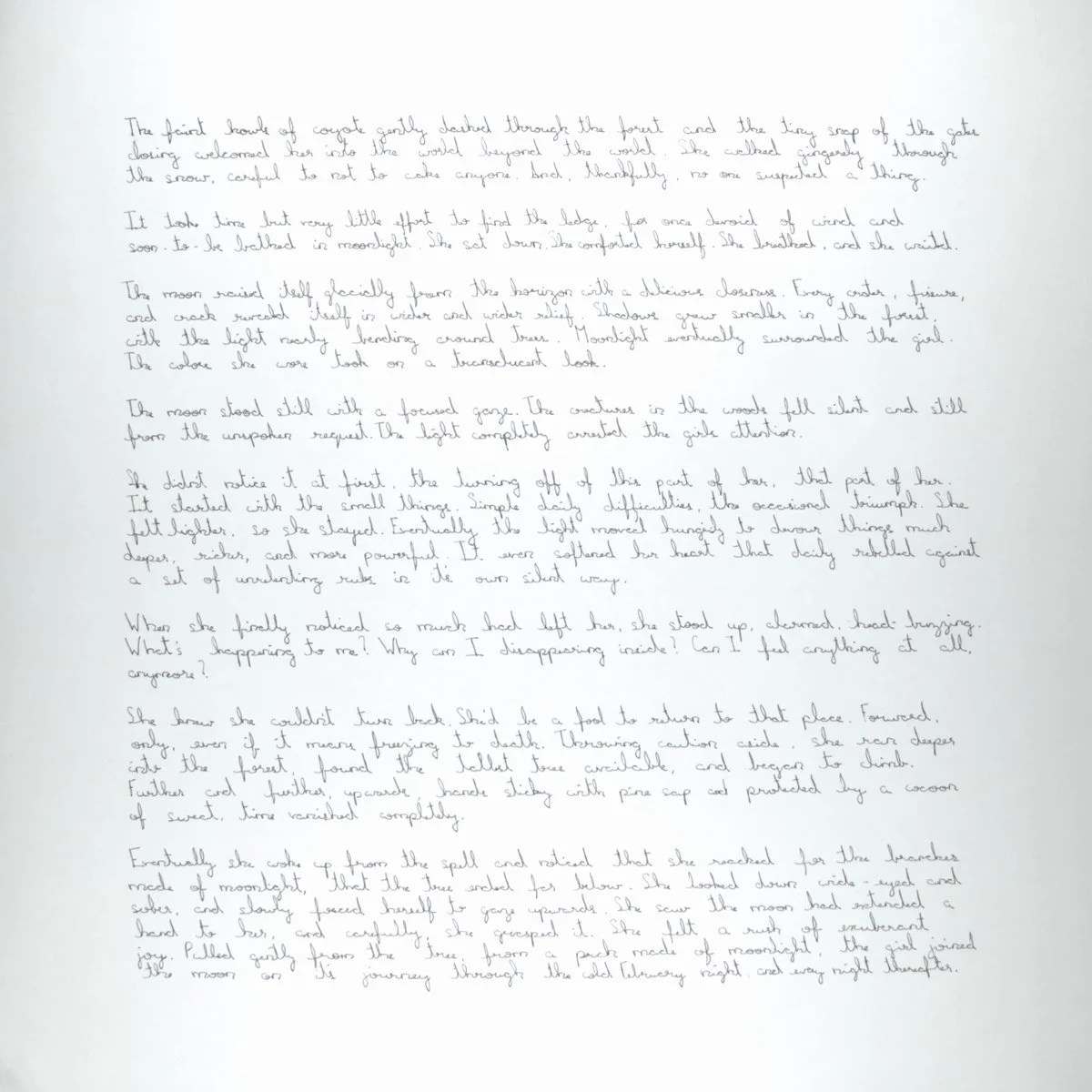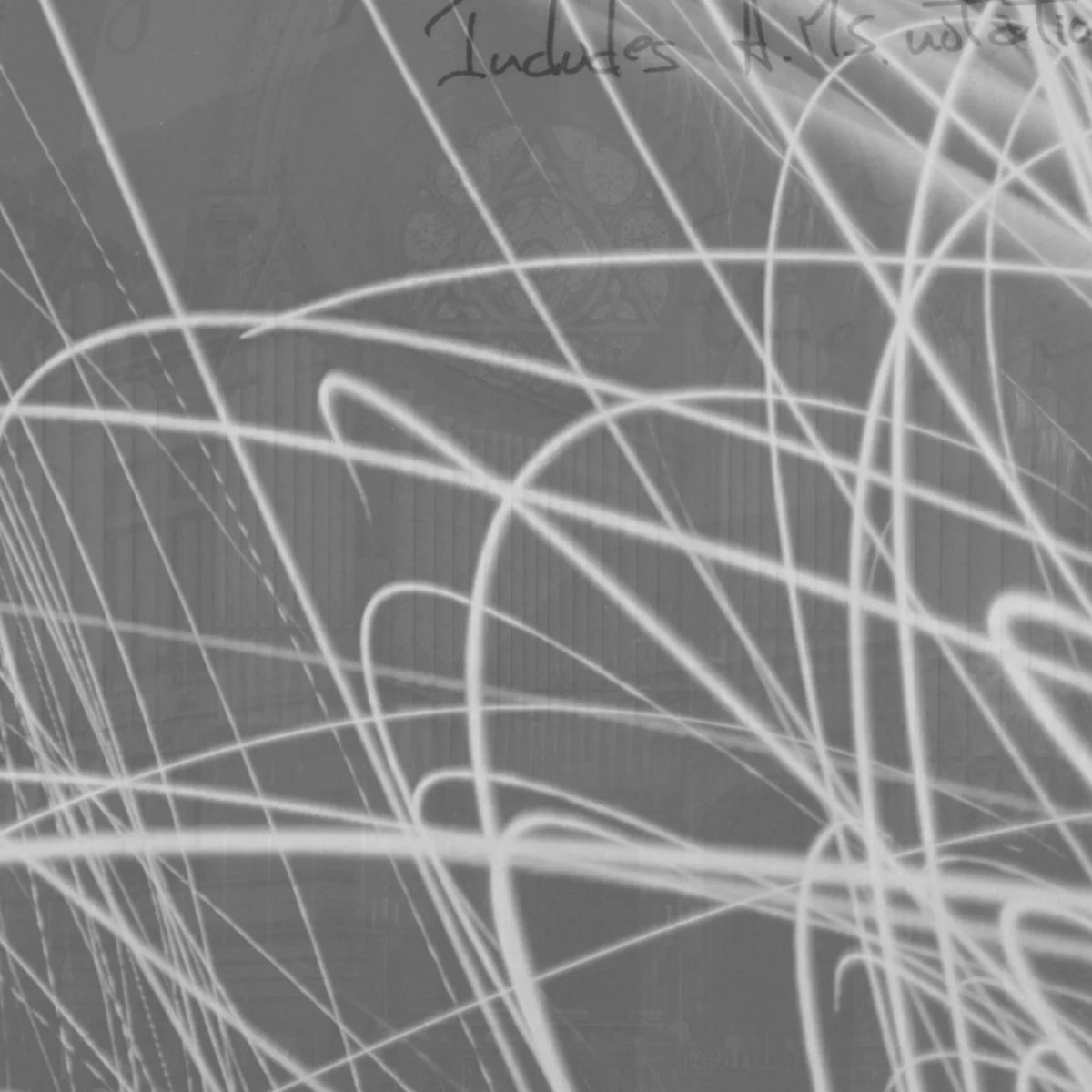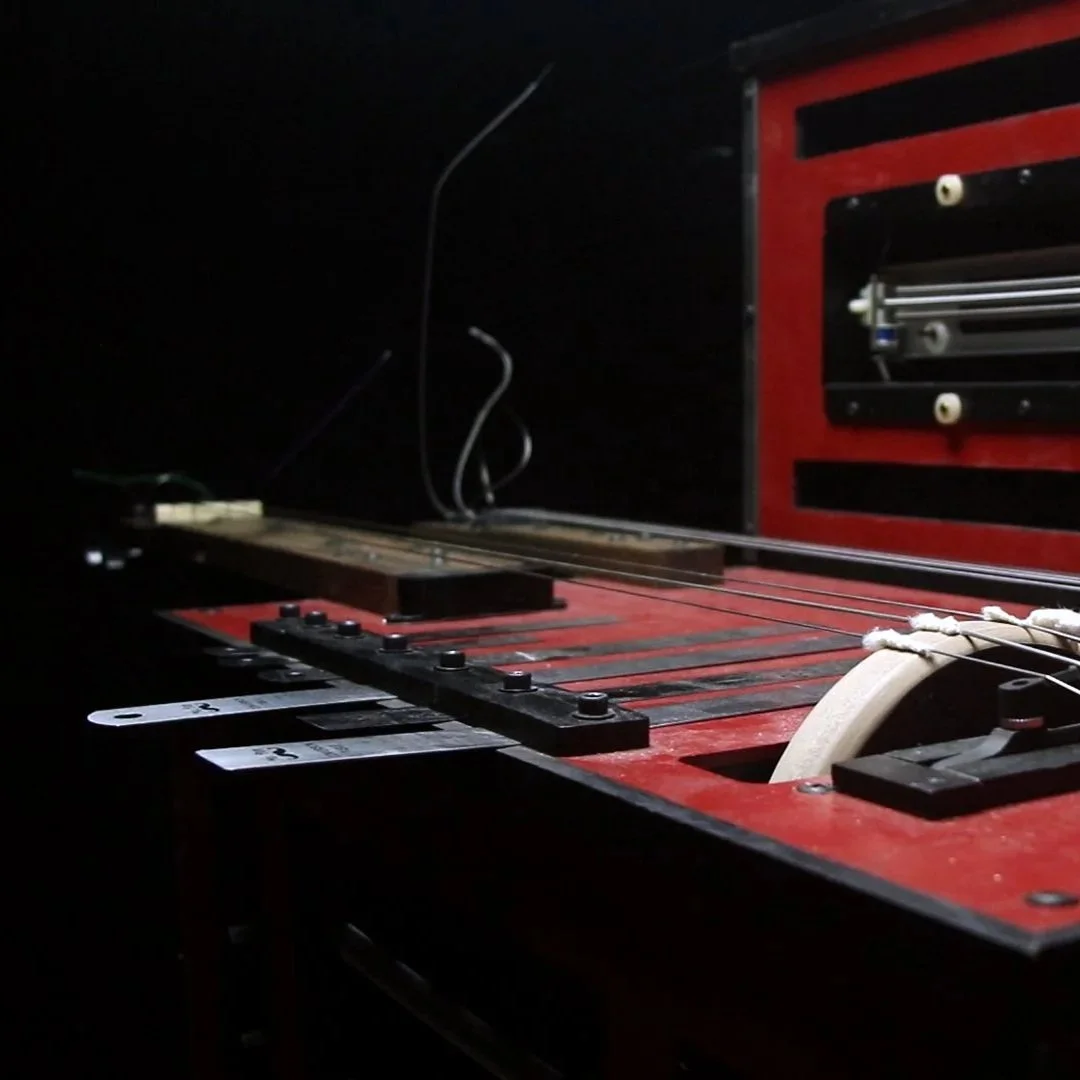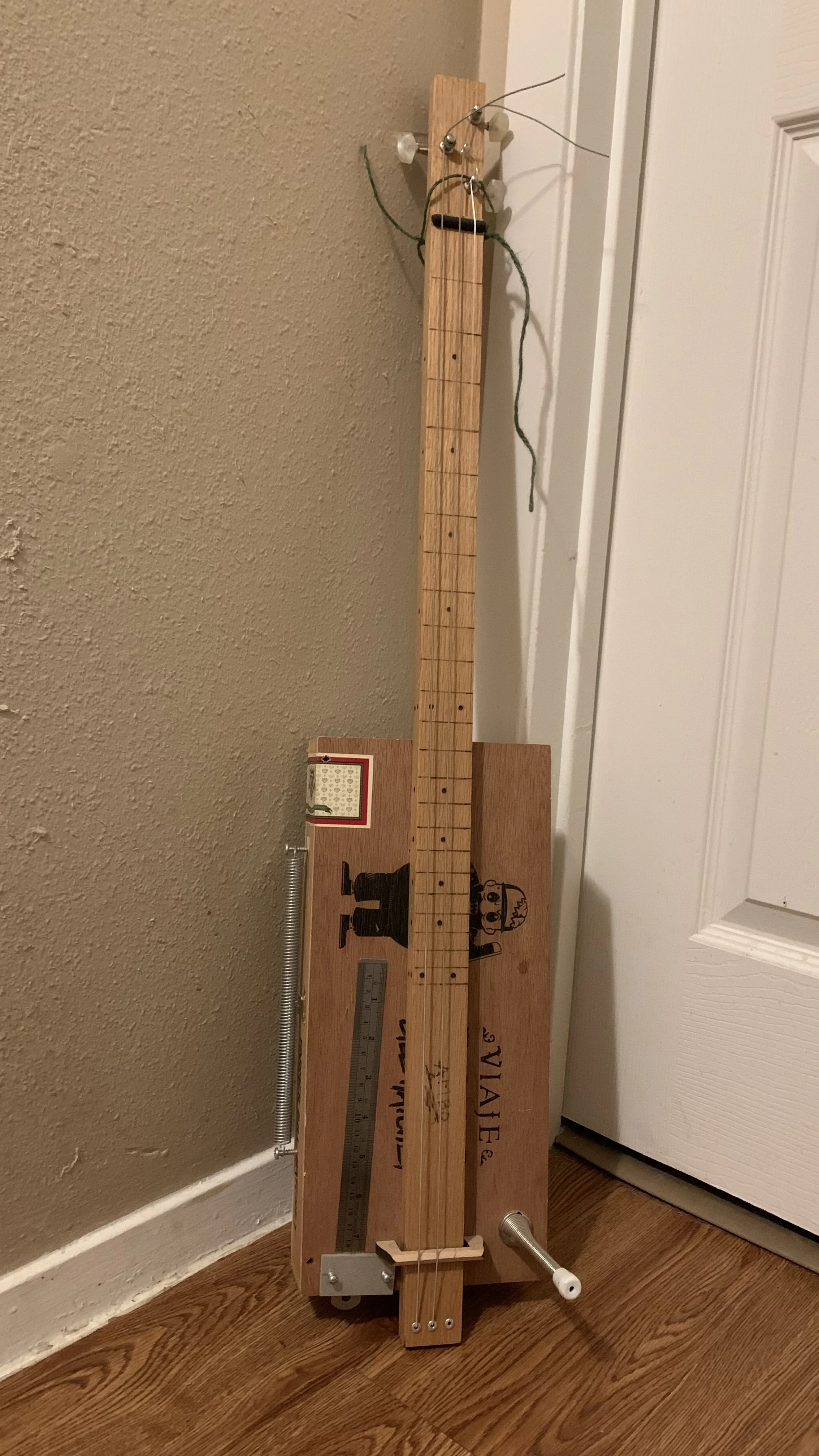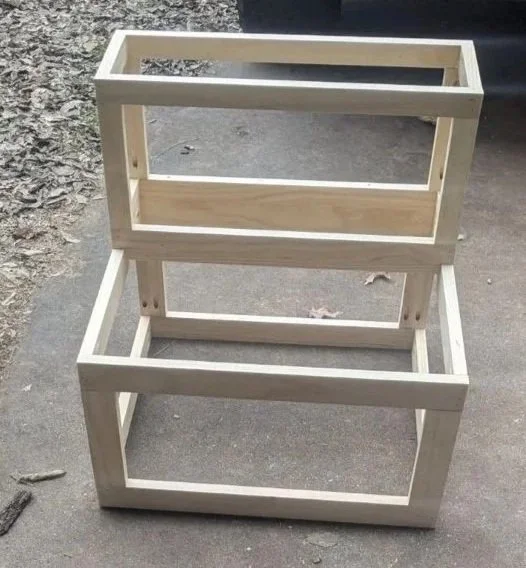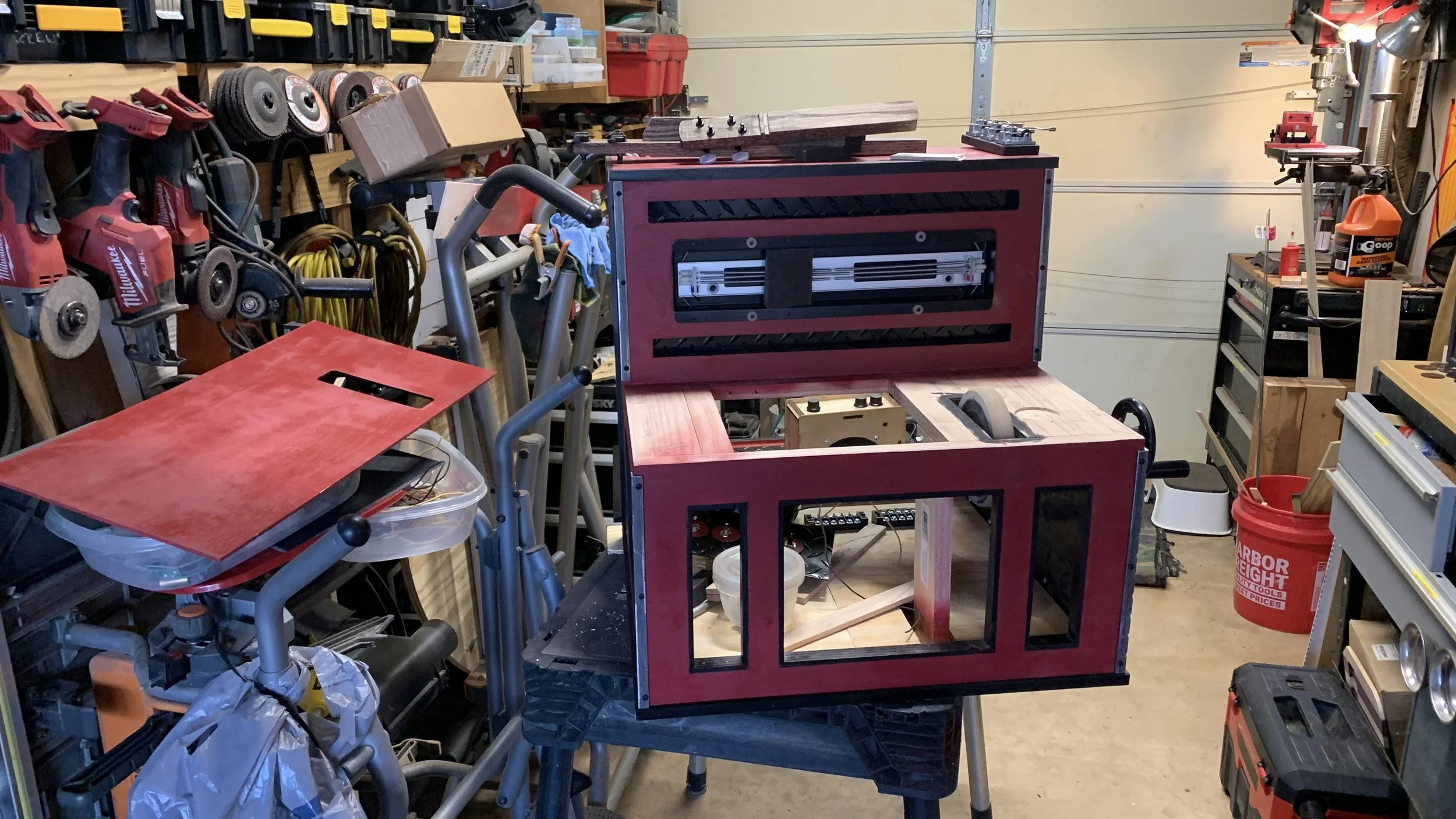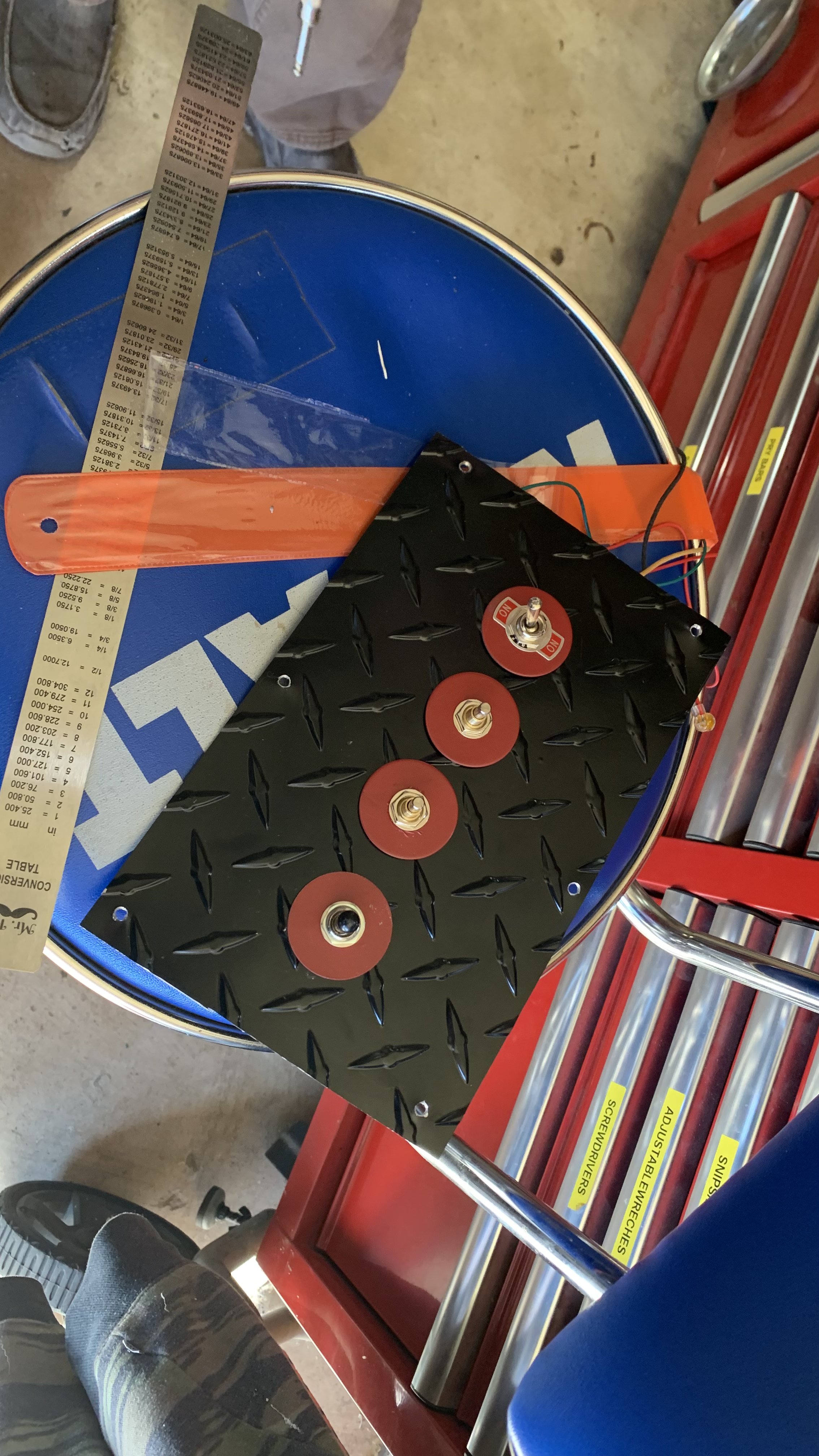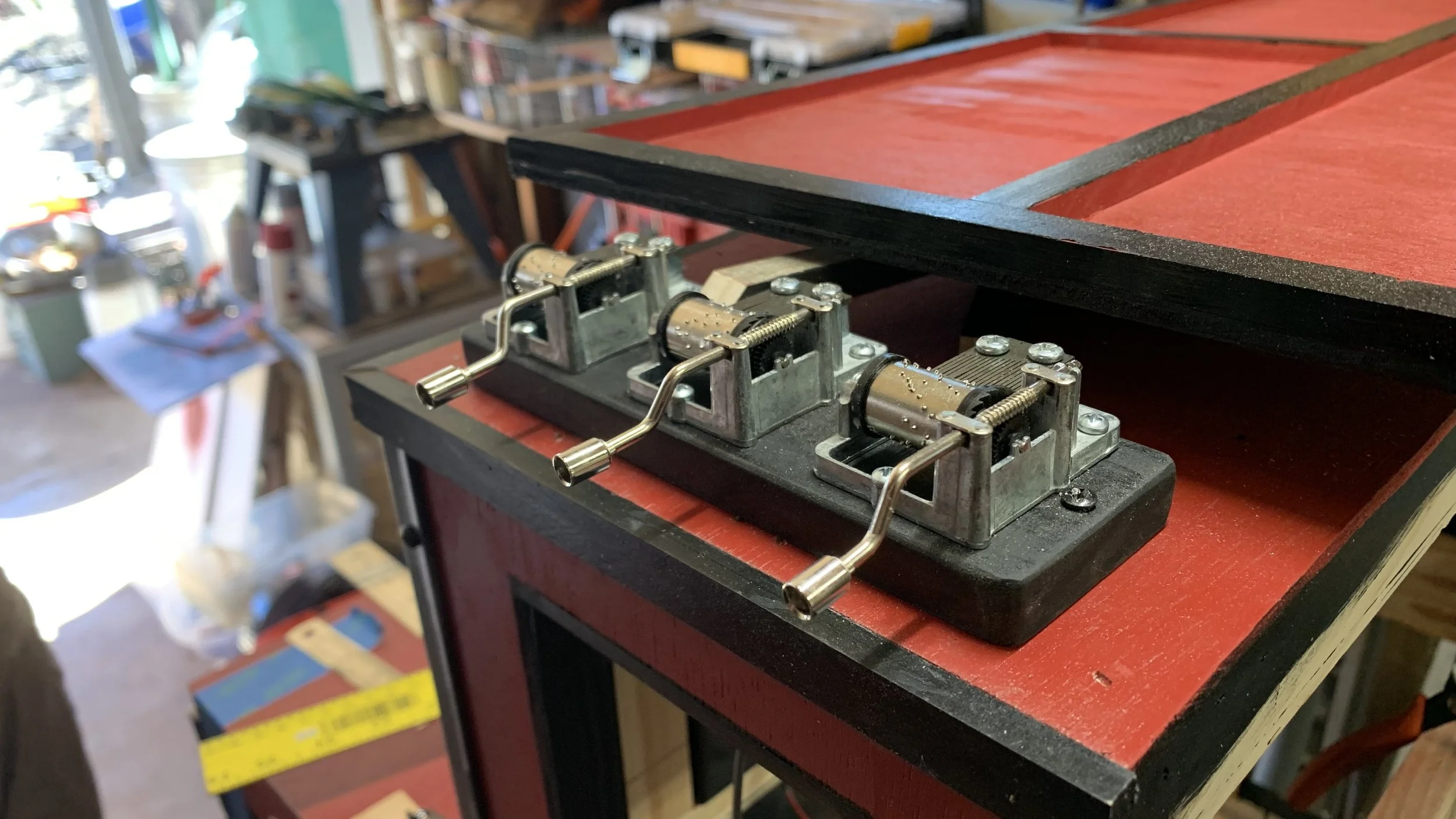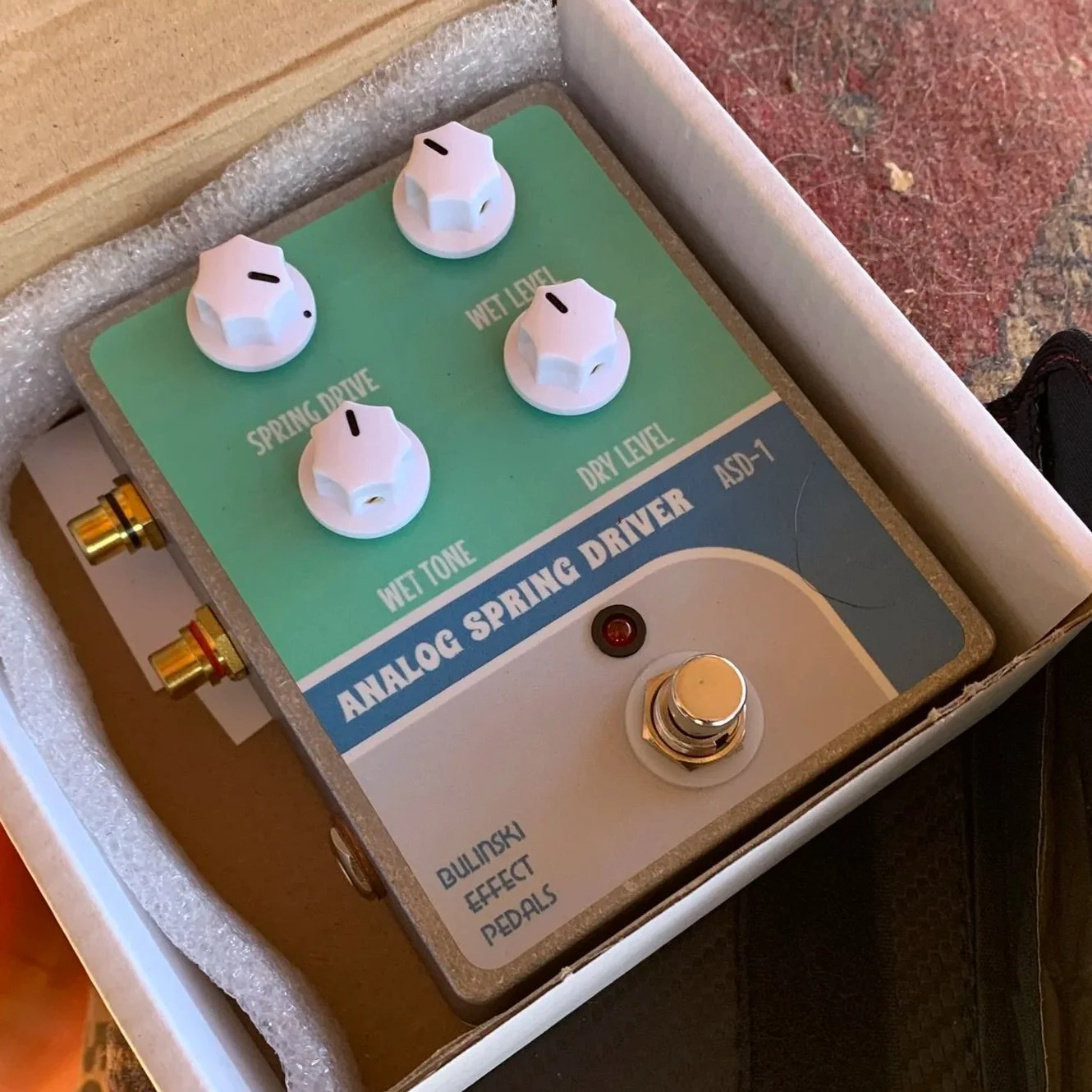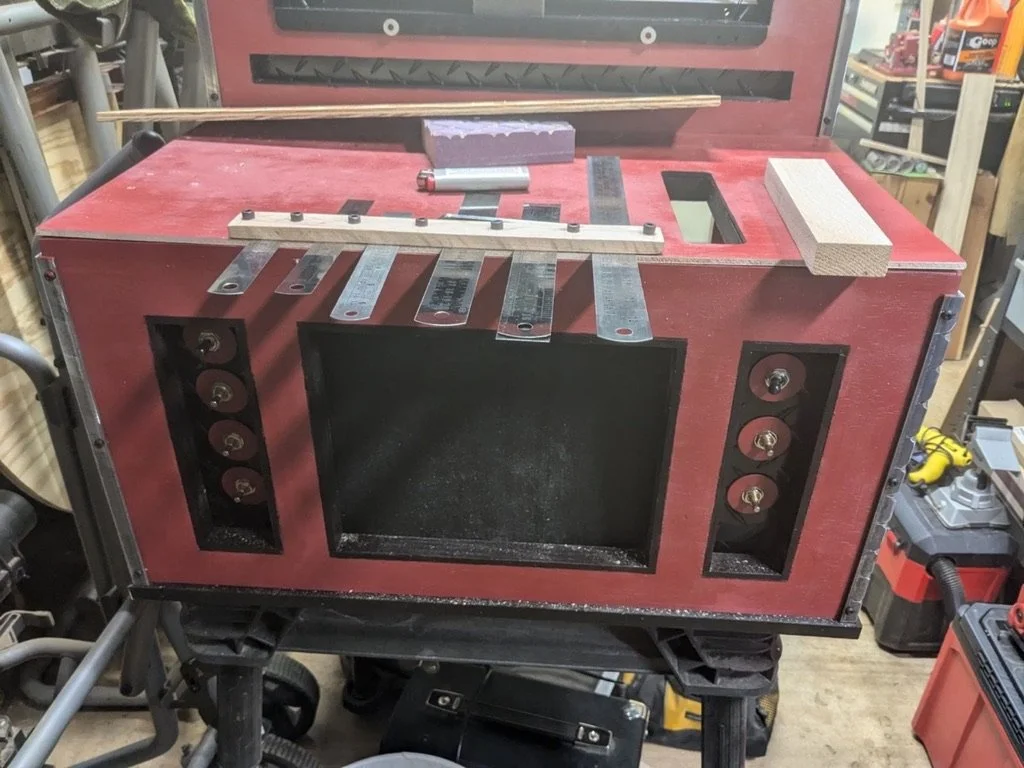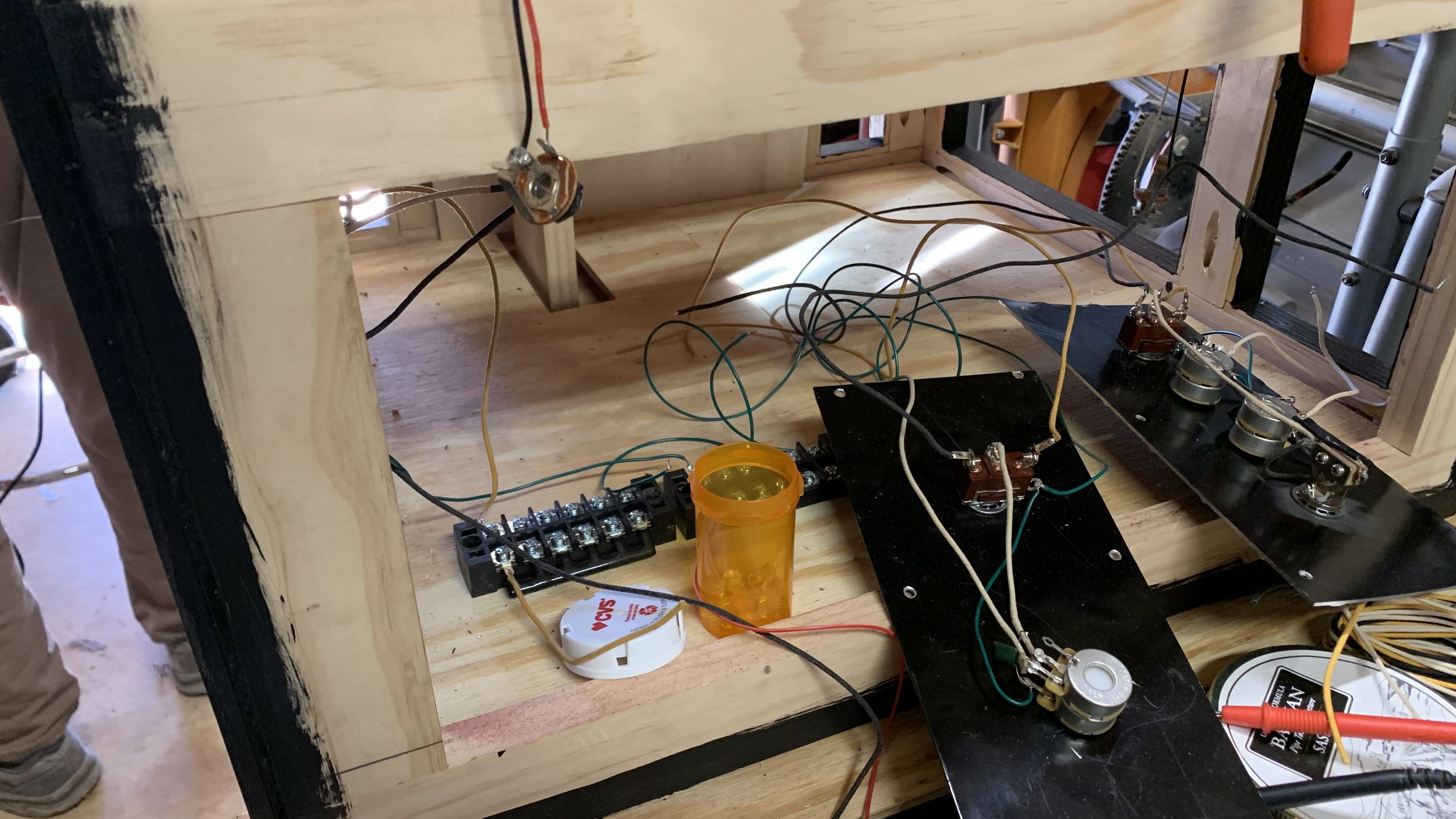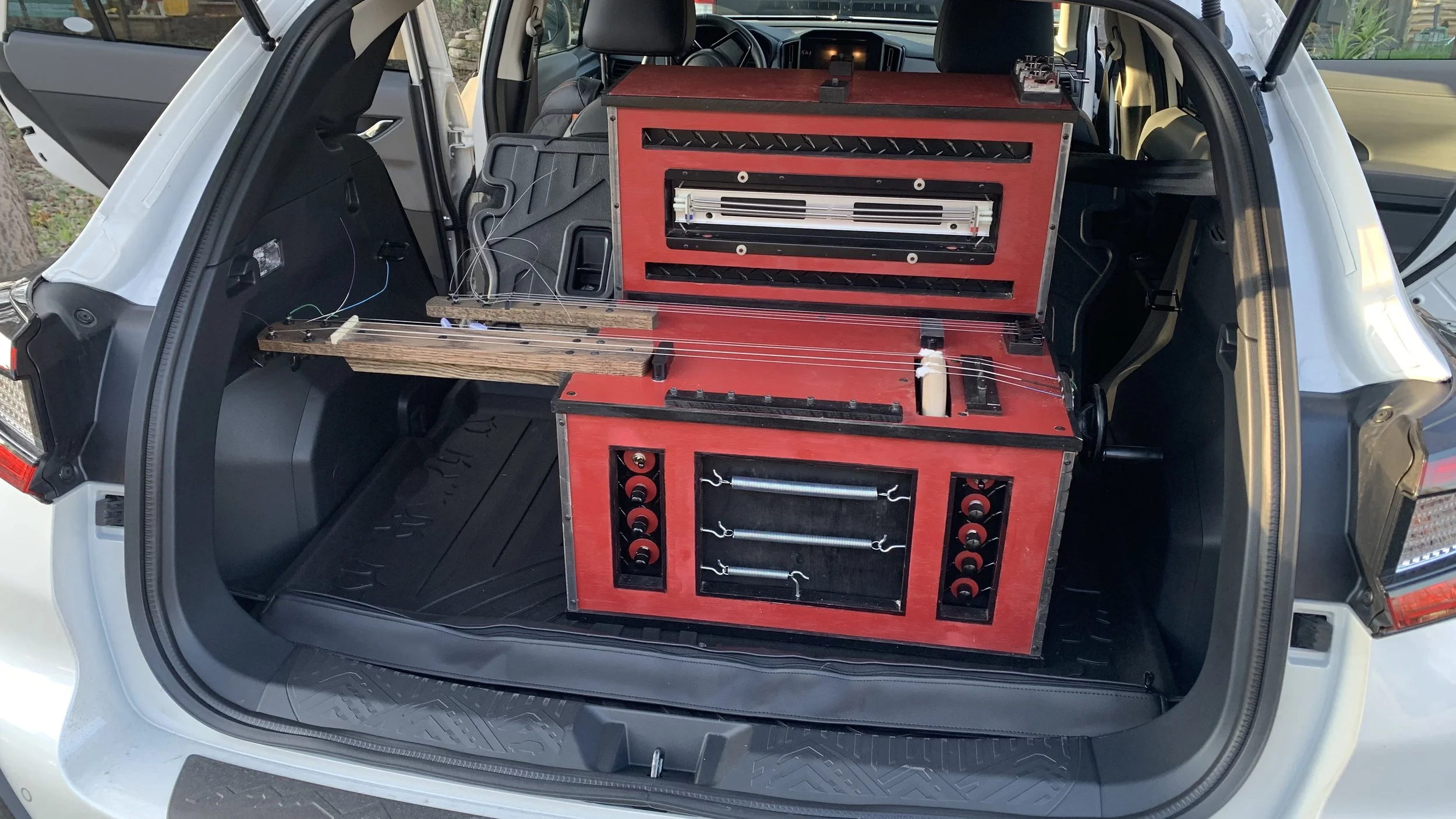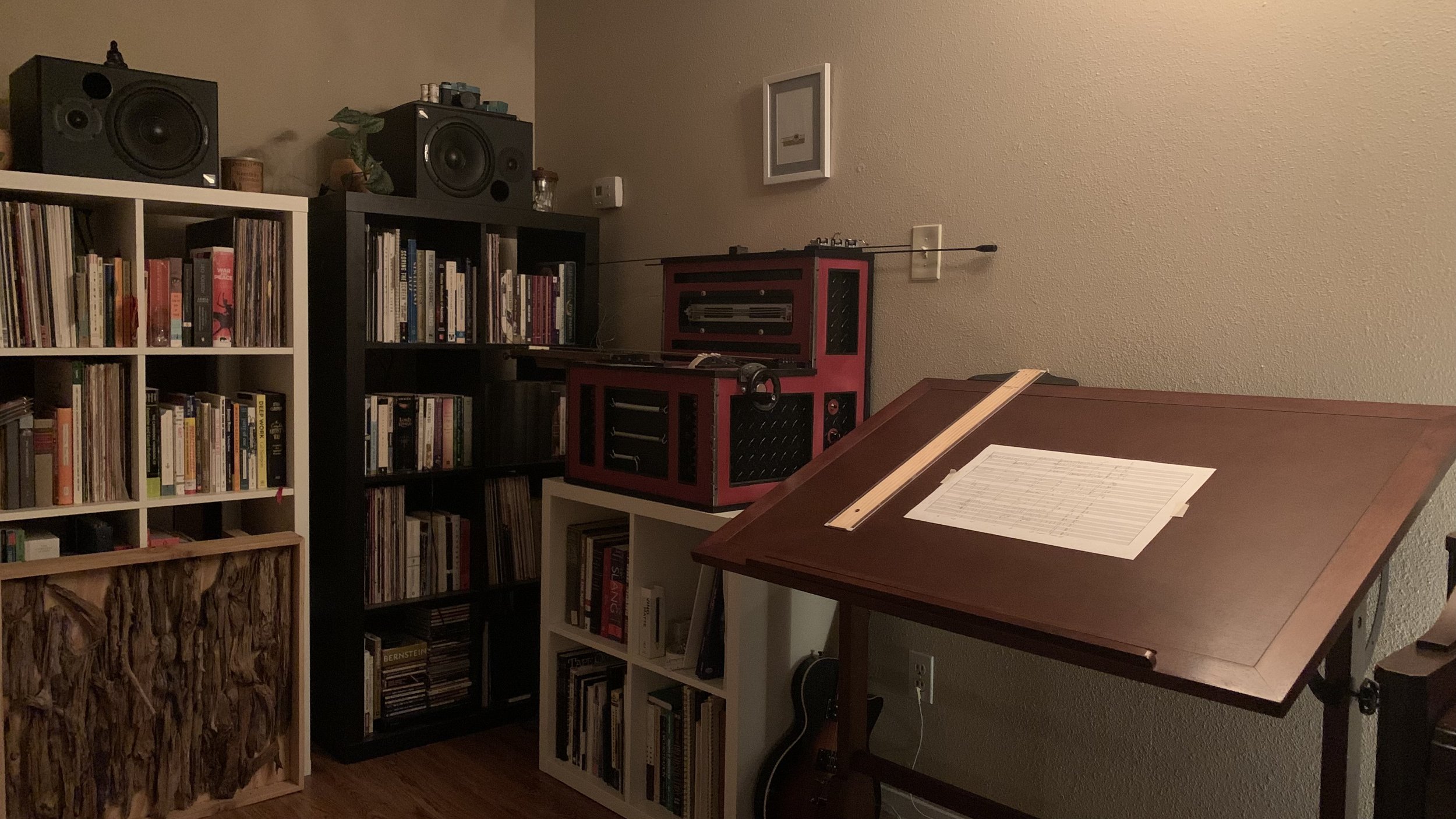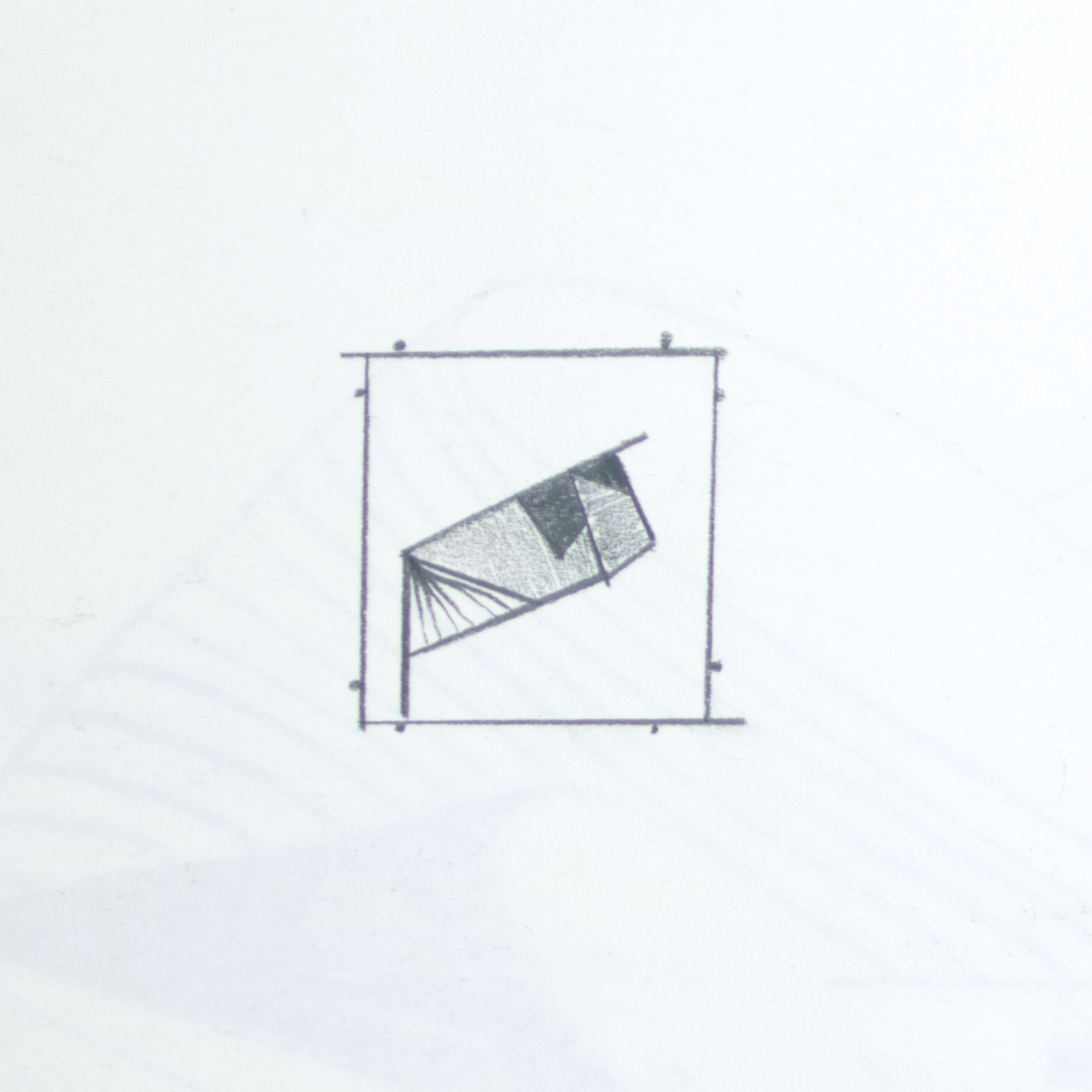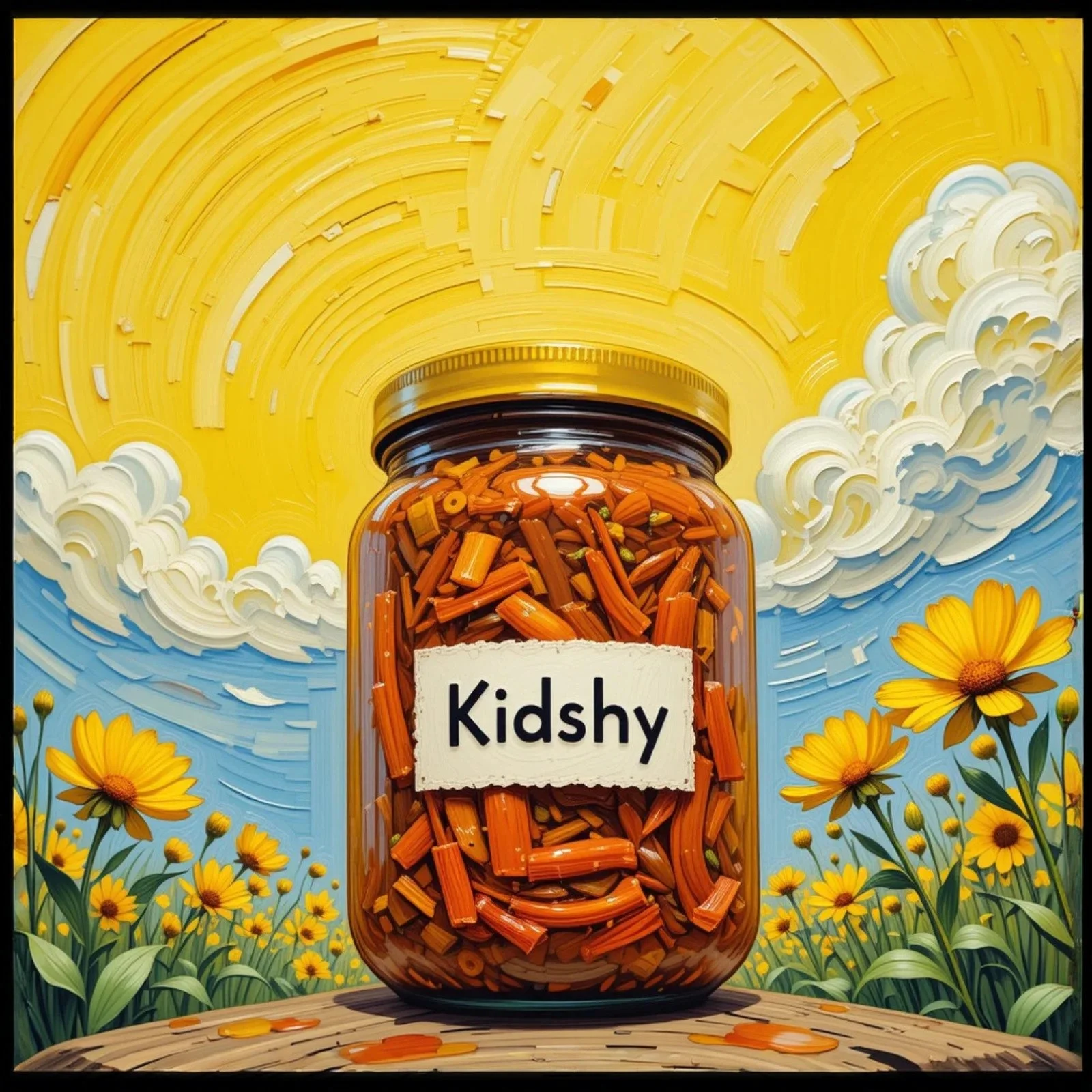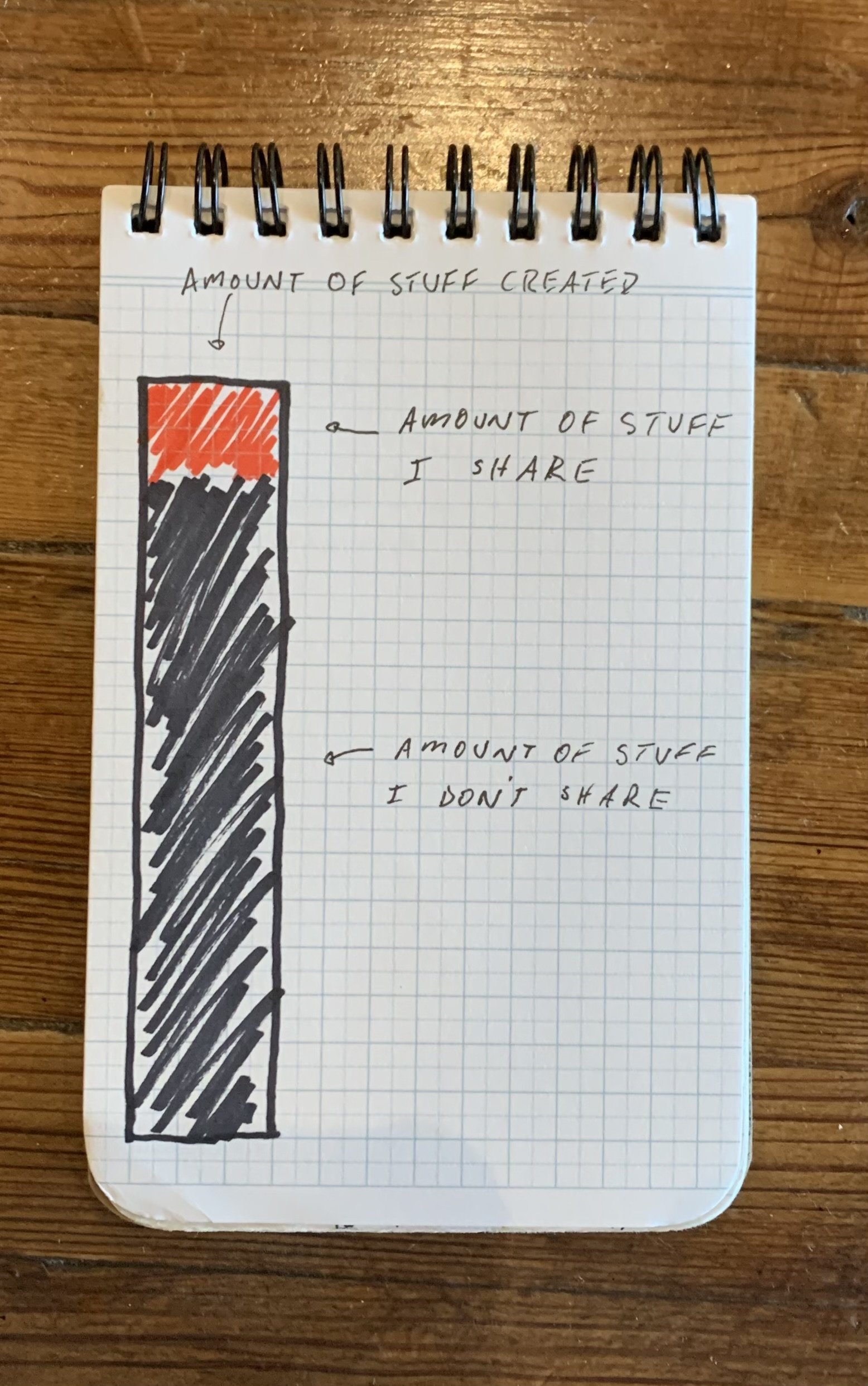Short, rhythmic ambient track with melodic fragments caught in a web of delay and reverb. Available on Bandcamp, exclusively:
Reading Notes
7-9 Minute Read | Laptop or Tablet Recommended
Topics and Themes
Perception of time in film; The ways in which music affects how we experience time; Enhancing the emotional impact of a story.
The Thrill of Speed
Imagine walking up to a stunning Lamborghini. The driver of the car steps out, extends a hand for a greeting, and invites you to sit in the front passenger seat, holding the door open for you. You slide into the bucket seat, gaze at the sleek dashboard, and breathe in the rich aroma of the car.
The driver slides in, coolly inserts the key into the ignition, reaches into the back seat, and grabs two helmets. With a playful toss, the driver gives one to you: "You're going to need this for safety, just in case. But overall, I've got you covered. You're in good hands." You slip on the helmet, and the driver inspects your safety harness. With a huge Cheshire grin, the driver asks, "Are you ready?" You flash a thumbs up. “Okay then!”
The driver slams down on the accelerator, and the force of inertia pins you back into your seat. At first, you can’t help but feel utterly astonished by the speed. The car launches forward almost too quickly. The engine roars with an intensity unlike anything else you've ever heard or felt. Details whirl into a haze. The twists and turns, with the rubber squealing on the road, create a loud sound that completely arrests your attention. You don't notice your hands white-knuckling it, grabbing onto whatever handles you can find. Mountains zip by, and the dust trailing behind the car swirls like a massive storm.
You can’t help but love every second of it. And before you know it, the ride ends. You will never forget it.
Now, let’s try a different thought exercise. Let’s take a moment to explore nature.
A Journey Through Nature
Imagine approaching a trailhead that leads into a mountain range. You have your backpack, your food, and everything else you need for a week-long expedition. You’re ready to embrace the trail. The guide steps forward and shakes your hand. It’s your job to follow, as the guide leads the way. The guide doesn’t talk much... Not unfriendly by any means, just not particularly chatty. The guide prefers to speak up when there’s something noteworthy to share, something to highlight, something that holds importance. Otherwise, the silence envelops you, allowing space for your personal journey.
The guide leads you on a trek through peaks, valleys, and streams. You witness nature at her finest… golden eagles soaring far off in the distance, and the clear clarity of light when you ascend to higher elevations. The guide pauses frequently, allowing you to absorb the beauty surrounding you. A sense of peace washes over you.
Yet, from time to time, you also walk close to urban areas. One or two nights, light from these cities invades the inner flaps of your tent. Air pollution sometimes irritates your lungs. You walk through tracts of land that corporations abandoned after exploiting the area. You feel a deeper sense of grief as you witness the scars left on this part of the world.
The guide knows these areas well and discusses them in turn. You hired this particular guide for a promise of a genuine experience in this mountain range. The guide didn’t sugarcoat anything for you. Everything unfolded as it was.
You can't help but appreciate every second of it. And before you know it, the trek ends. You will never forget it.
The Connection to Film Composition
If you’re still with me, perhaps you’re thinking, “What is he getting at?”
This:
In the first example, Junkie XL was the Lamborghini driver, and Mad Max: Fury Road was the movie. Junkie XL composed the score for Mad Max: Fury Road. This huge, action-packed thriller grabs your attention from the first minute and refuses to let go until the end.
In the second example, the mountain guide was Nicholas Britell, and the movie was Moonlight. Nicholas Britell composed the score for Moonlight. This slow-moving indie drama invites you to immerse yourself in a narrative and perspective in the most gentle way.
Overall, the two stories I presented in the beginning illustrate one of the most important concepts in film composing: An audience's perception of time.
The Spectrum of Time Perception
Both experiences, though vastly different, reveal how filmmakers manipulate time with music when you watch their films.
The Slow Tick of Indie Dramas
In some indie dramas, viewers tend to perceive time as slow. It feels as if each second ticks onwards. For example, The Zone of Interest, a haunting exploration of the life of a Nazi officer in charge of Auschwitz, provides a prime example. Through sound and a minimal score, the film compels everyone to experience the weight of every second in a painfully conscious way.
The Vanishing Act of Action Films
In contrast, viewers frequently do not notice time at all in the big action films. It's almost as if time vanishes deliberately. Consider Dune and Dune: Part Two, both of which Hans Zimmer composed the scores for. He is well known for creating big action scores that make two hours fly by.
These films exemplify how different types of film scores shape the audience's perception of time, with indie dramas inviting reflection and action films quickening heartbeats.
An audience's experience of time while watching a movie can be illustrated on a spectrum, like this:
A movie can occupy any position on this spectrum. It depends entirely on the director and their vision for the film. Very rarely do directors chase the extremes on either side.
The Composer's Role in Shaping Time
A significant aspect of my role as a film composer involves determining exactly what the director wants the music to feel like, including how they want the audience to perceive time.
As much as I might want to plaster a slow indie drama with wall-to-wall music, that would do a great disservice to the film. I love how slow indie dramas afford me the opportunity to take my time with the pacing of the music. There is less pressure to make time vanish. The studios that support these movies prioritize making a point; often, they want to shift towards exploring the human experience. Music that highlights this humanity enables the audience to think and feel in a deeper way.
Similarly, if I took a minimalist approach and shied away from scoring for large drum ensembles, orchestras, and big synthesizers for a major studio action thriller, I’d get fired in an instant. When big studios get behind films to the point of putting 20 million dollars or more into them, they want to see a return on their investment. They want to ensure that time dissolves for the viewer. They want to enthrall people who are paying for a movie that they can escape into. In this instance, scoring music that makes time disappear couldn't get more important.
I often ask pointed questions about how the director wants the audience to experience time. I like to ask this one: “How much do you wish to put the audience in a hypnotic state with music in your film?”
The answer to that question influences how busy or unhurried, how thick or thin, how industrious or organic the score needs to sound.
The Resonance of Time in Storytelling
Ultimately, whether racing through an action-packed story or meandering through a dramatic narrative, the way a filmmaker structures time shapes not only the film but also the audience’s emotional journey.
Most writers and directors I’ve met harbor a deep respect for the power of story. They want an audience to connect with the characters, to identify with the changes they have undergone. They want viewers to join them on that journey. In addition, they want film-lovers to invest in the characters and the journey they went through.
The way an audience perceives time will directly affect how well a story resonates. If the music manages time effectively, the audience will care even more.
In other words: Filmmakers who carefully attend to time, and how music influences it, will communicate their stories in a much more impactful way.
Lunae Lumin will be the latest ambient record to be released by Wicked Cities from a Distance (February 20th). Lunae Lumin is a concept album for the short story, A Perch Made of Moonlight.
This music was recorded and edited to a 432hz standard, which to some ears sounds way better than the perfectly tuned 440hz.
High resolution download of the story, the front and back covers, included with purchase:
Extremely influenced by Tim Hecker, Tomasz Bednarczyk, and Abul Mogard, the newest from Wicked Cities From A Distance focuses deeply upon a moving organ drone expressly synthesized through a Eurorack granular synthesis patch. It’s available for members of Fire, Fire, Red Star Down only.
Reading Notes
7-9 Minute Read | Laptop or Tablet Recommended
Topics and Themes
A behind the scenes look at the making of the ultimate horror-film foley device: The Nightmare Machine.
Affiliate Note
When you make a purchase through links found on this site, we may earn commissions from Amazon, Perfect Circuit, and other retailers.
I would describe my Uncle Ambo (not his real name, “uncle” is an honorific title) as simultaneously the most intimidating and most loving person I've ever met in my life.
Ambo strikes a figure. He has a long Gandolf-style beard that reaches clear down past his chest. His yard is full of garden beds and BBQ equipment. I've never met anyone with so many tools. Routers, drills, presses, planers, joiners, you name it, he's got it. And he’s prepared for the end of the world. If there’s a zombie apocalypse, I’m going to Ambo’s house, first thing.
I've known Ambo for many years. We met because we ran in the same circle of people. At first, I thought he was the biggest dick. He was incredibly rude and brash to me the first time we met. I kept my distance for a good three years. Of course, I was friendly, but still, I gave him a wide berth.
As it turns out, Ambo only respects people who challenge him. It wasn't until I seriously dug into him, made fun of, and got really in his face in an incredibly aggressive way that he opened up. Not too much longer after that would I come to discover how deeply he cared about everyone and their well-being. If he saw someone about to get hurt, I have little doubt that he would step in and do the right thing, even if it messed him up. There’s stories there, but you’ll have to ask him about it.
Nonetheless, I mean it when I say it: Uncle Ambo is simultaneously the most intimidating and most loving person I've ever met.
I was blessed to live close to Uncle Ambo during the pandemic. Although the pandemic made things incredibly tough in so many ways, I was able to convince Ambo to hang out. He smoked a pipe. I smoked a cigar. We didn’t cough in each other’s faces. It worked.
The conversations always flowed. Ambo is probably the smartest man I've ever met. The amount of knowledge he has about building, construction, carpentry, woodworking, cooking, and lyrics to random b-sides from the 1940-1990 absolutely infuriates me. It’s annoying as shit!
But I do know about guitars. Naturally, Ambo and I bonded over them. We would share interesting videos of weird guitars we’d find. He recently sent me a guitar of Pat Methany's that made my back hurt just looking at it. It had about 50 strings, and looked about as many pounds of weight. Sometimes I’d find weird instruments and send them to him. We’d talk about pickups, the style of guitar body and the sound. We’d send interesting amplifier ideas back and forth. At one point, I believe that Ambo was the one who found the Apprehension Engine.
I can't imagine anything more frightening in a film than for there to be silence, and all of a sudden a single sound from the Apprehension Engine, at just the right moment. That video impressed both of us. After weeks of conversations, I think I finally got the courage to ask him if he might be interested in creating one for me. I told him he could have creative autonomy if he wanted it. I told him it just had to be scary as fuck. He agreed. We ended up calling it The Nightmare Machine.
Neither of us had no idea what we was getting into.
Protoyping the Nightmare Machine
Ambo loves to build prototypes of everything he wants to create more of. He calls them “jigs.” He did this with his cigar box guitars, of which he's created damned near three dozen of by this point. It wasn’t a stretch to make a prototype Nightmare Machine out of a cigar box. This is what he created.
I used this prototype Nightmare Machine on the soundtrack for Fetch, an indie short horror film directed by Heather Halstead. I dare say it sounded vicious and intense:
The Nightmare Machine Build, In Photos
As time marched on and the pandemic ended, we could all resume our lives without anymore interruptions. It took another couple of years before Ambo decided to try to build the actual Nightmare Machine. We were smoking on his back porch with his two rottweilers barking away, and he said, "It's time for me to built it."
Now we’re talking!
Ambo agreed to send me as many photos as he could remember to send. I received this one from him, showing the skeleton of the machine:
He added some more parts to the machine, including some grill metal he found for super cheap:
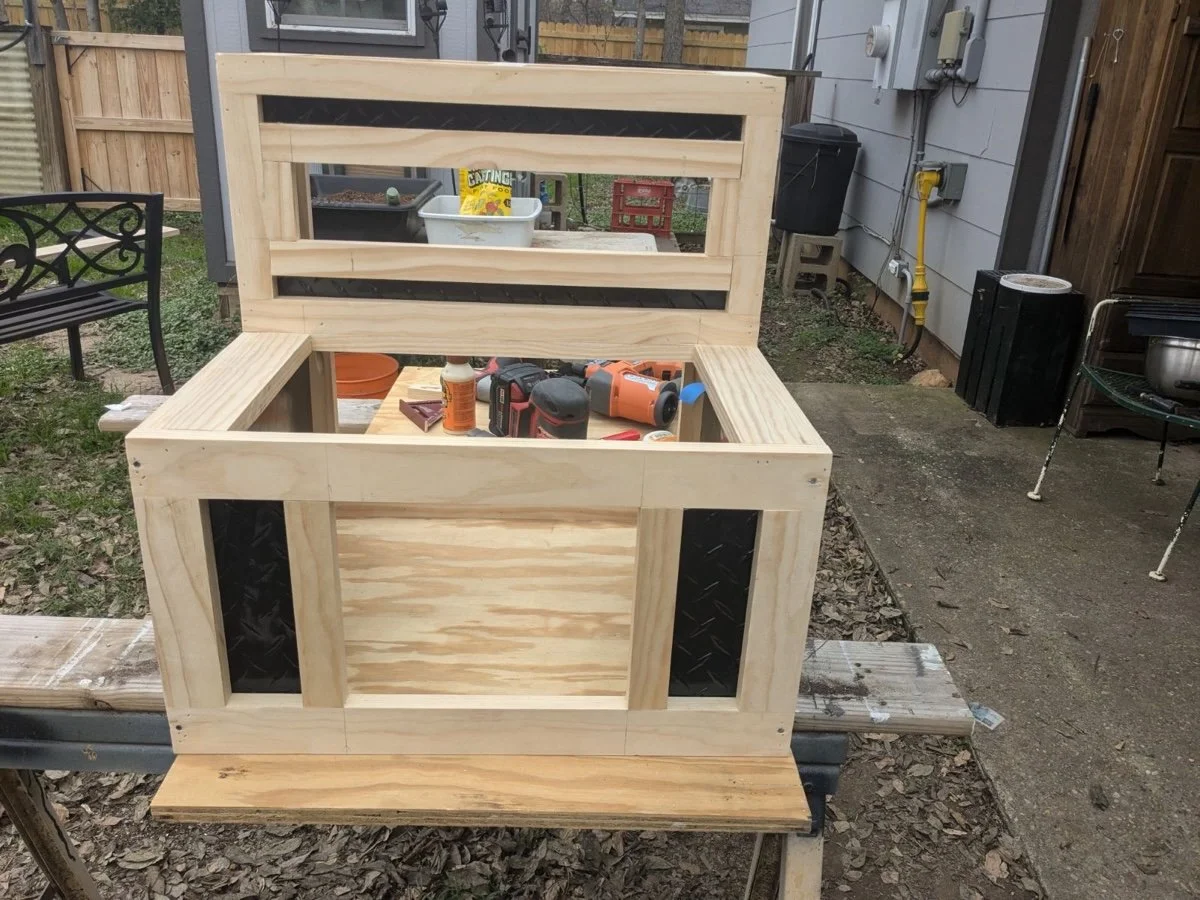
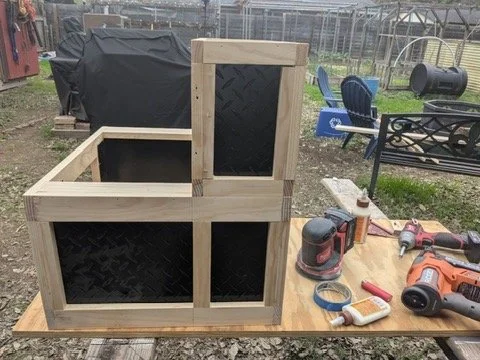
He began spraypainting the Nightmare Machine a dark, blood red, for obvious reasons:
Because Ambo has more than a decade of experience working with cigar box guitars, he began to create the circuitry and wiring for the machine in the metal grills. The switches look great with the red circles:
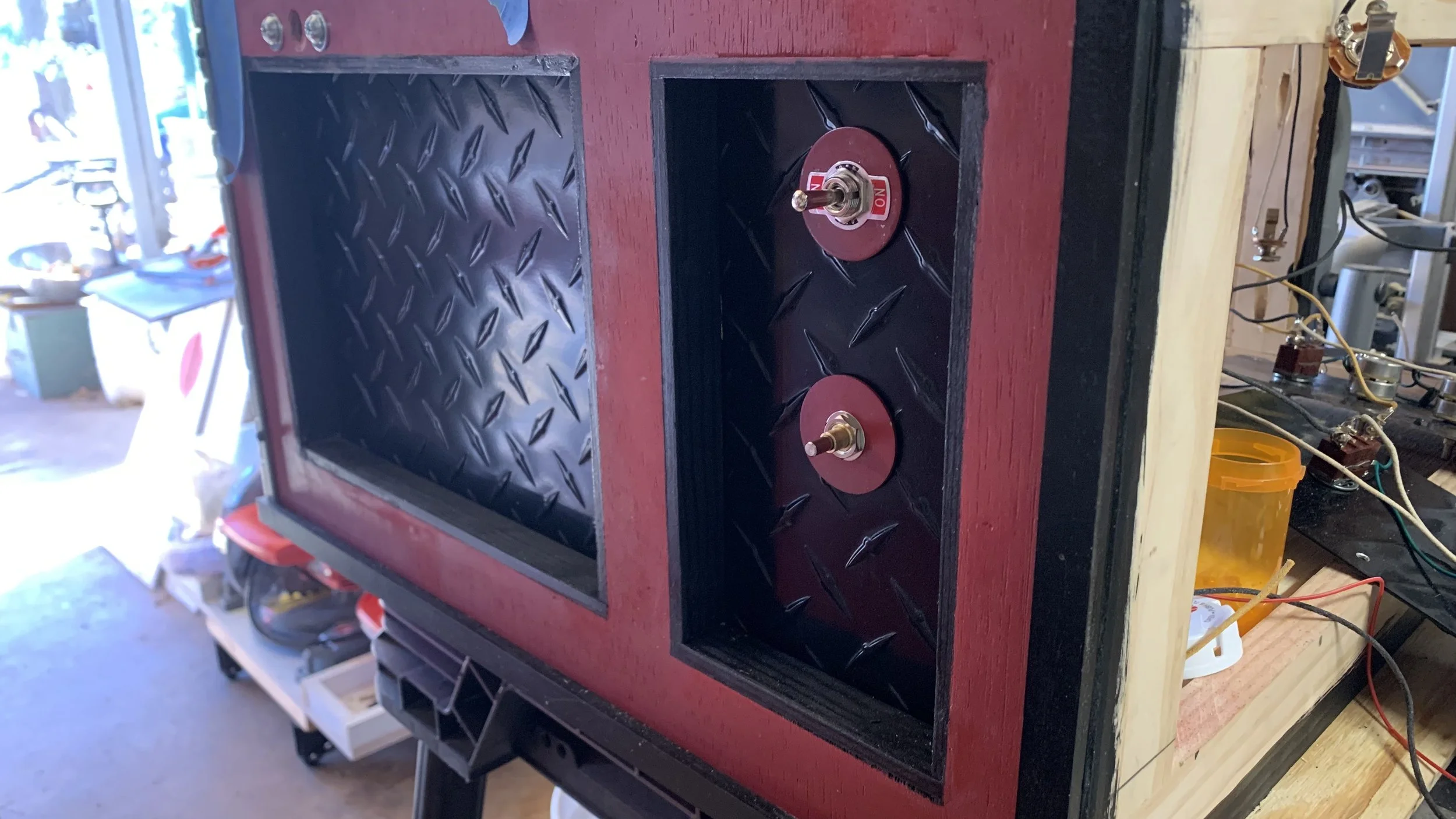
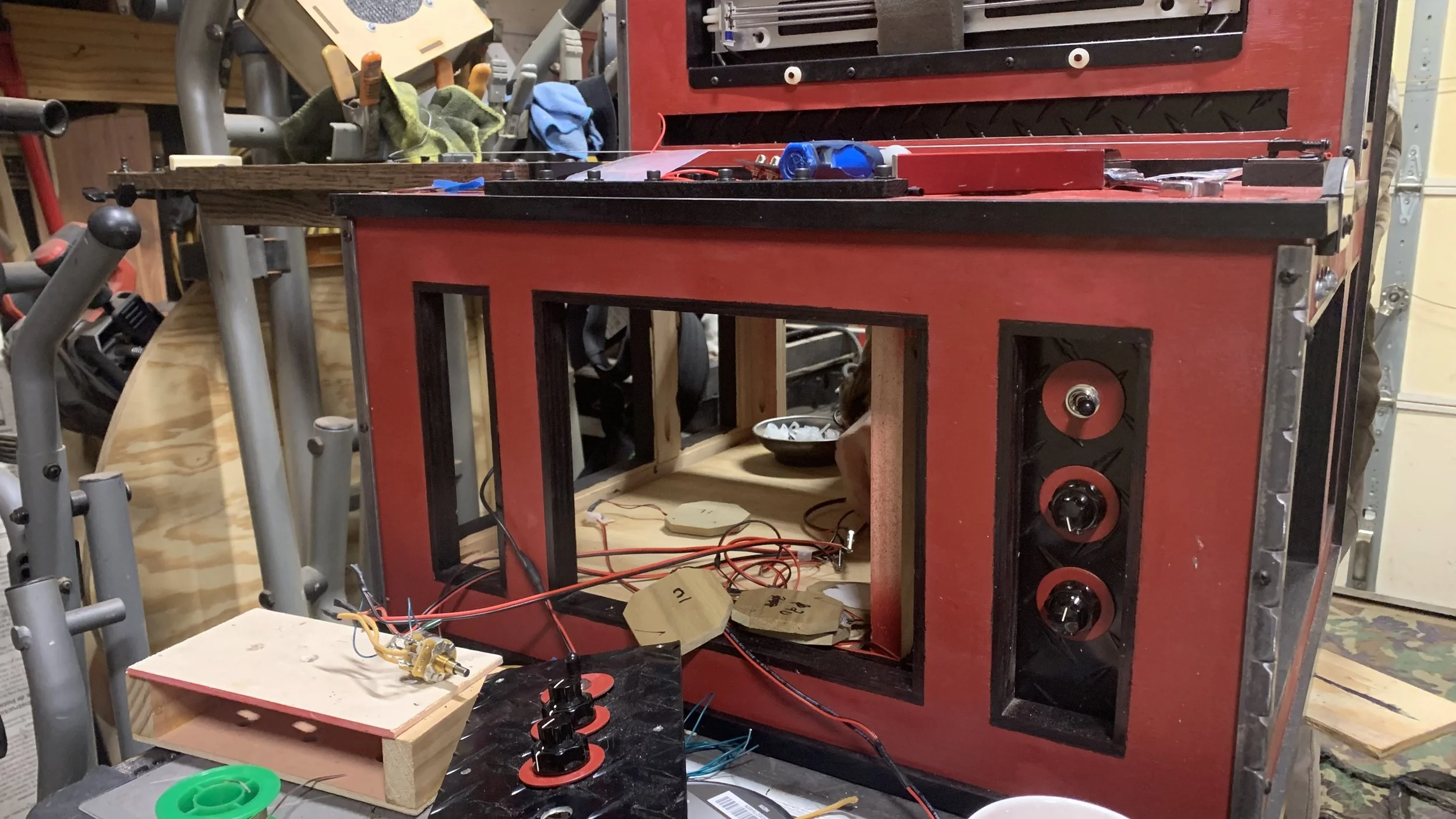
Here he is adding the guitar neck (further away) and the hurdy gurdy neck (closer). Notice how beefy the hurdy gurdy neck is:
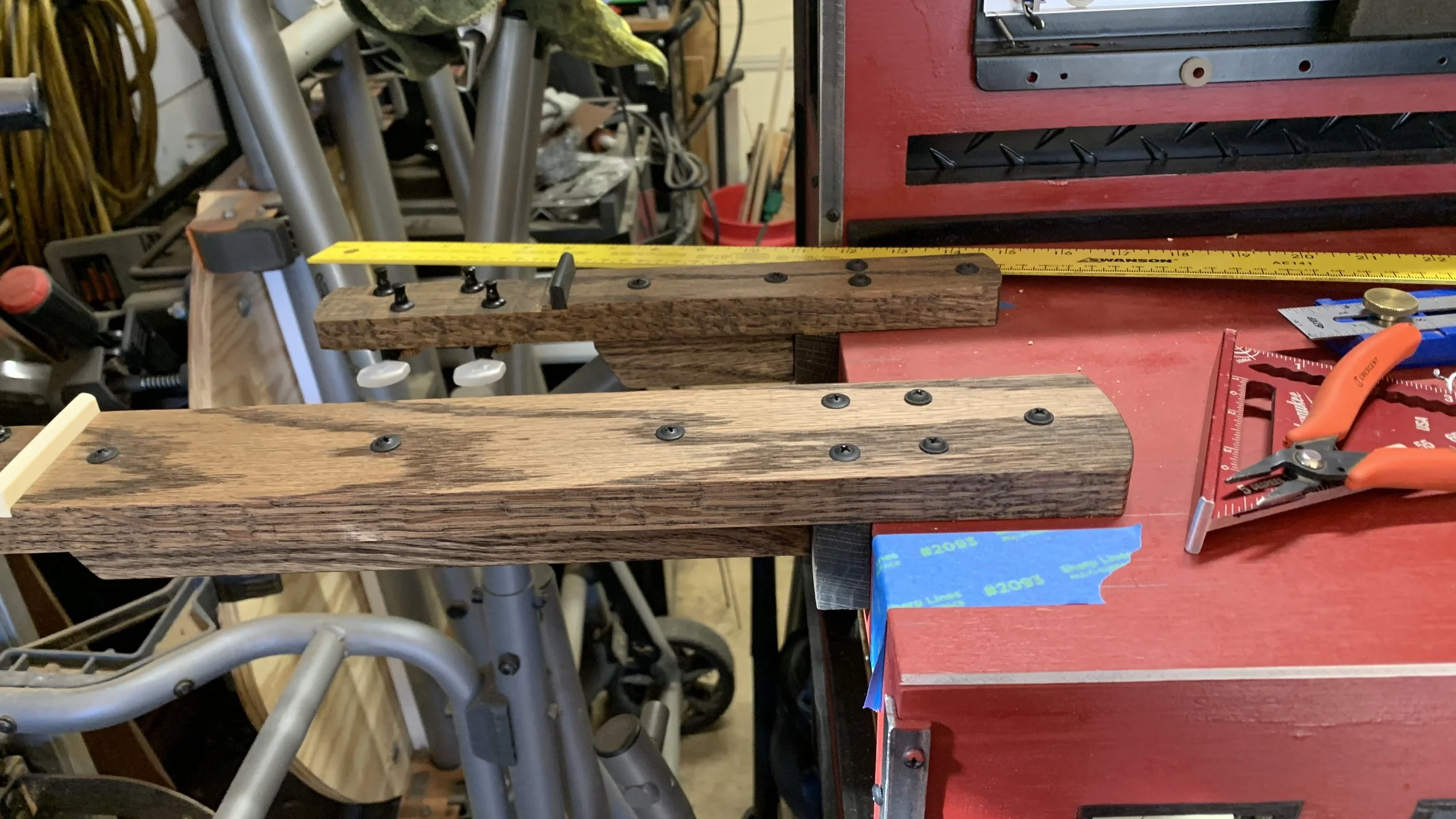
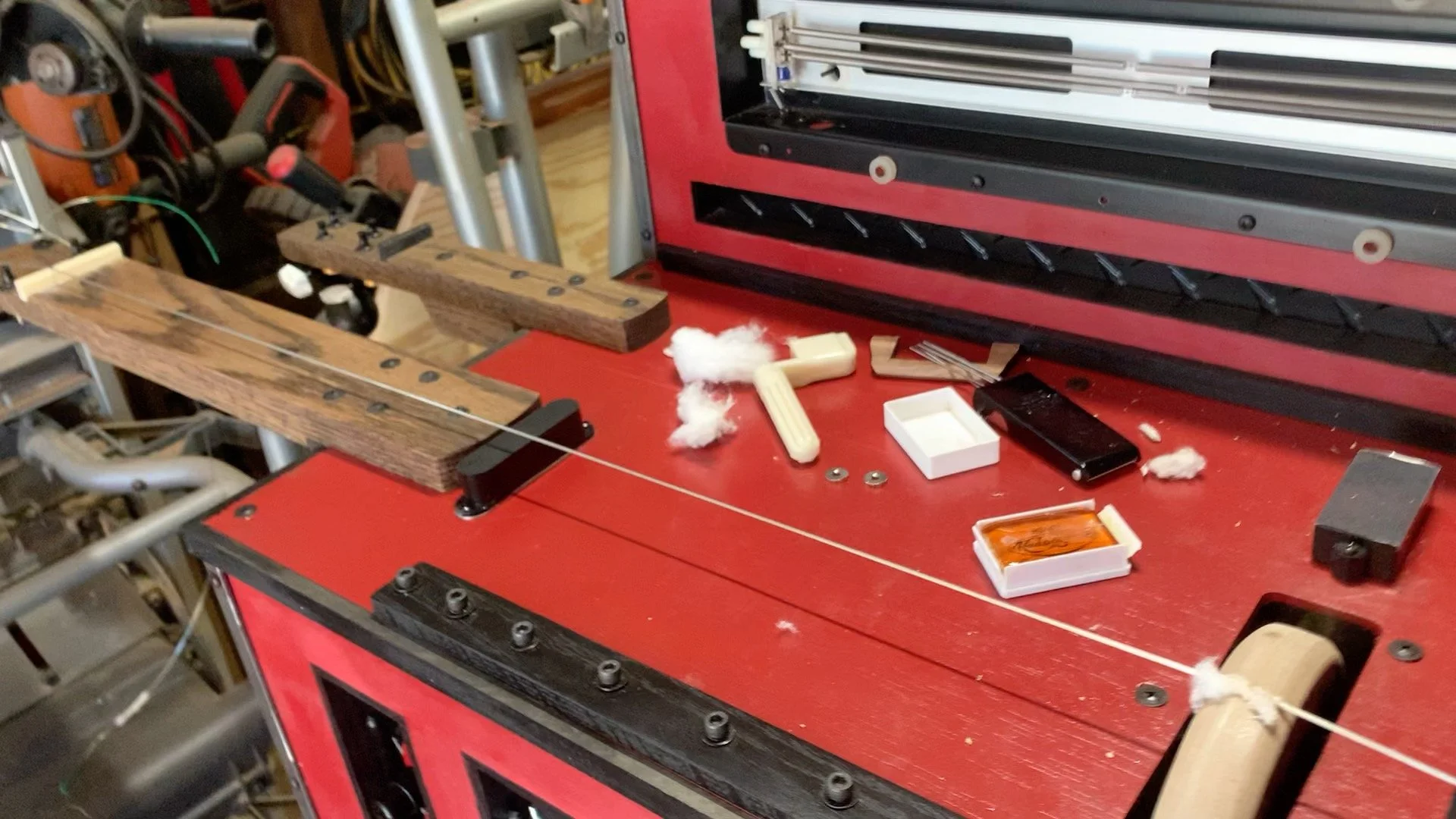
I have no idea why Ambo signed up for this. I mean, looking at the wiring in the back of the engine gave me an headache. How the hell does he keep this shit in his head? As time marched on, more and more switches, plates, and finishing details went on the machine:
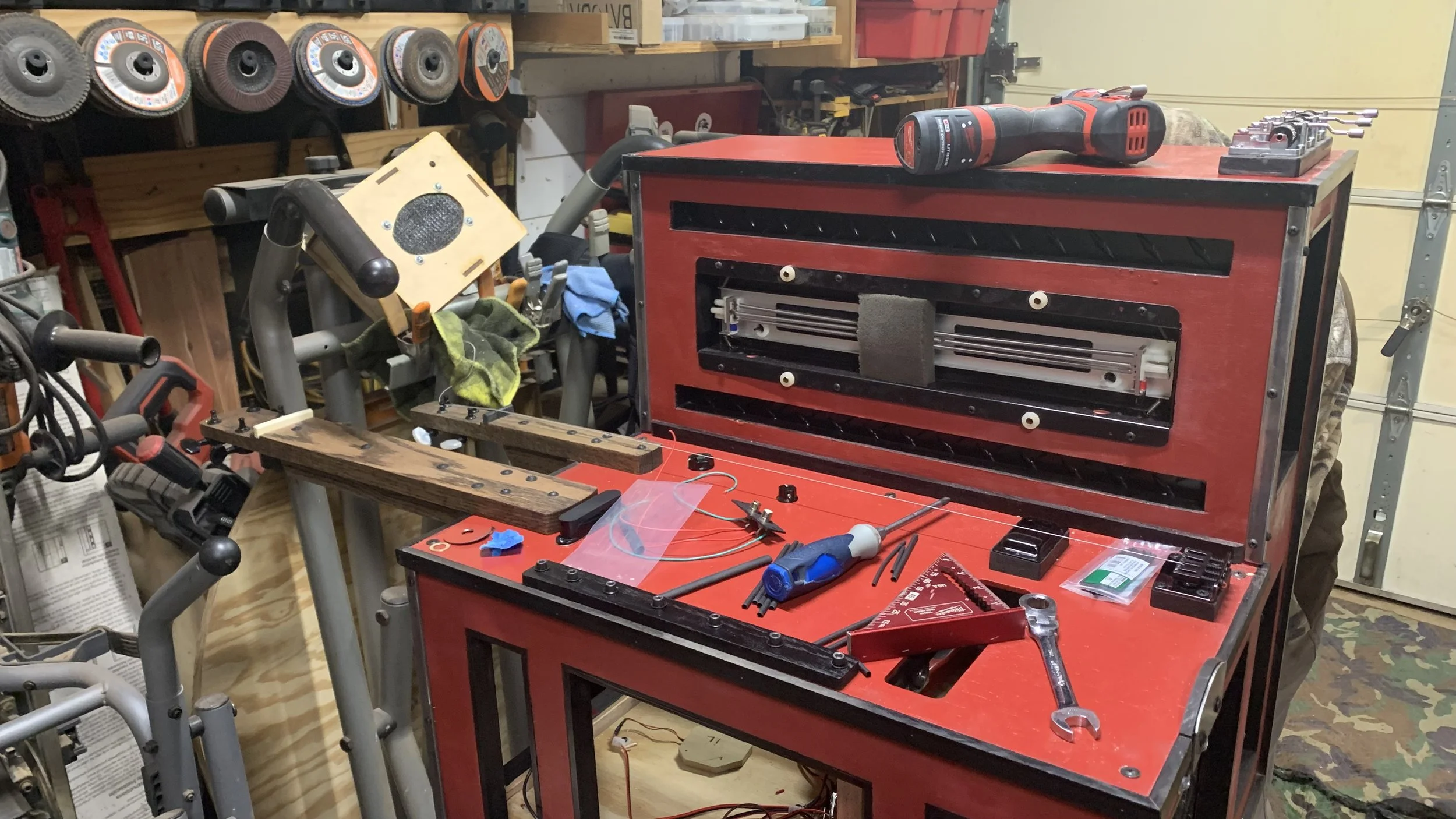
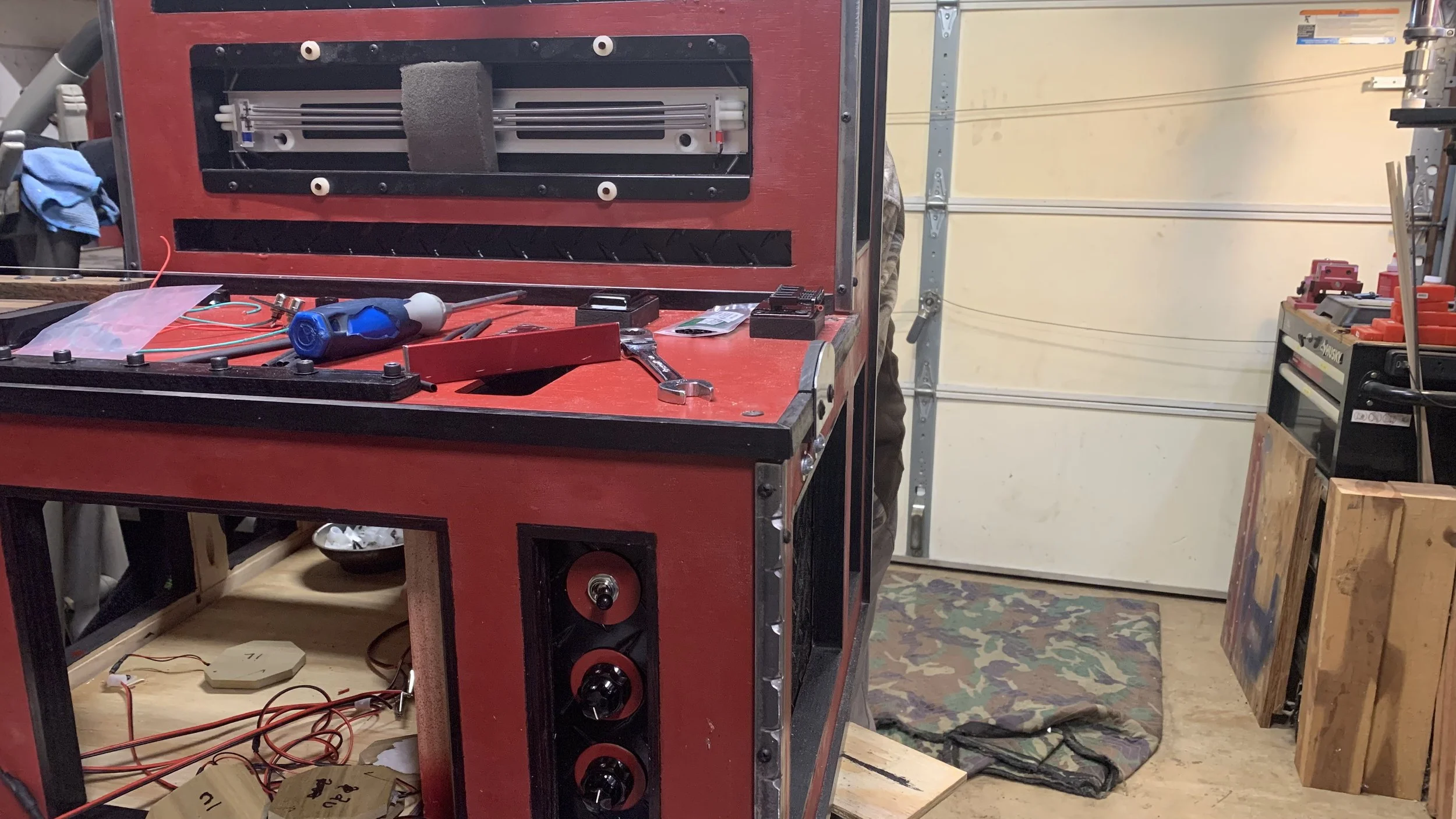
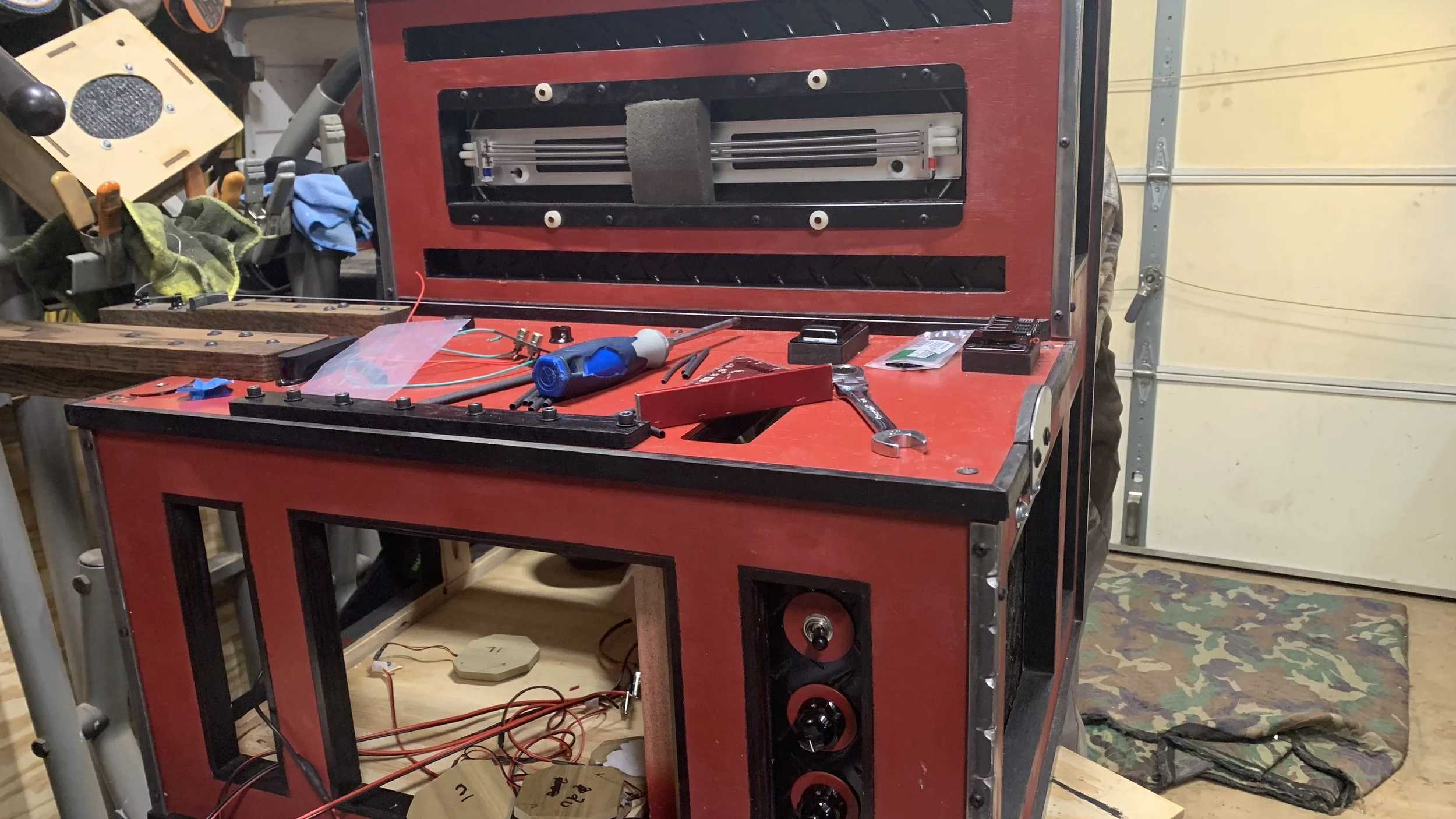
He even found three tiny music boxes and installed them on the top of the machine. I gotta say, that sounds as creepy as all get-out:
The spring reverb is powered by an analog spring driver by Bulinski Effect Pedals. I have to say that after trying out dozens and dozen of spring reverbs on well-known amplifier brands, none of them could come even close to the beautiful sound of the spring reverb Jim installed and this Bulinski spring driver:
Ambo added rulers to the front of the Nightmare Machine. Pressing them down creates an intensely creepy sound:
More wiring. More mind-blowing:
As time marched on, Ambo began to work on the most intense part of the machine, the Hurdy Gurdy wheel. We learned that we needed to adequately coat the hurdy gurdy wheel with rosin, cover the string in cotton, and only use cello strings to make the hurdy gurgy come alive. This was our first test:
Finished Build: The Bumper Warranty
Eventually, with the finishing touches done, Ambo said, "Take this fucking thing home. I'm tired of working on it. BTW, you have a bumper warranty."
"What's that?"
"Once I no longer see your bumper, your warranty is up."
I gingerly put the Nightmare Machine in my car, closed the trunk, and waved goodbye.
Right before leaving he said, "Be careful, there's people out there."
"There's always people out there."
Set up in my living room, this thing looked like a honking piece of gnarly intensity:
When I finally plugged it in, I couldn’t believe it. It sounded exactly as I imagined it would:
Conclusion
It thrills me that I had the balls, years ago, to aggressively make fun of Ambo to his face. Had I not given him that push, I don’t think we would have ever become close enough to collaborate on this machine.
It surprises me to this day exactly how full the world is of creative characters like him. I barely scratched the surface of his immense creativity in so many areas of life. His willingness to help build this Nightmare Machine, and allow me to tag along to document it, has boggled me. I obviously owe him a lot of coin for doing this. And hilariously enough, he doesn't mind that I owe him (for now). After all, he said, "I'd rather have you owe me than for you to cheat me out of it later."
Kaffir Piano employs a variety of unconventional production techniques to make its less-than-two-minute track stand out. It is bass-focused, but not to the point of overshadowing the other elements. The atmosphere it creates lingers over the guitar and bass, perfectly capturing that moment when you come home from work at 6 PM, and it's already dark. You're home, but the day has slipped away.
The Double Headed Seagulls have never shied away from a tightly focused, harmonically experimental sound. Much of their music evokes a constantly shifting musical undercurrent. Flowery language aside, you can certainly count on The Double Headed Seagulls to push harmonic boundaries but in a very understated way. Kaffir Piano does just that.
Yellowish is a hip Hop beat from 2004. Recently discovered and remastered. For a behind the scenes look at KidShy, click here.
When the tree branches hold a great deal of weight with ice and snow, when the air seems almost too still for breathing, and when driving anywhere horrifies you, "Music For Ice Storms" is the remedy. This is music that serves you well if you'd just rather... not.
Though Wicked Cities From A Distance's prior two releases have explored the noisier side of ambient with both *Dual Portamento* and *Lodern*, "Music For Ice Storms" marks a return to the more relaxed, chill ambient roots. Always tinged with a slight edge of melancholy, this music is still perfect for a chill snow day.
Tracklist
Névé: A noun meaning granular snow on high mountains that has been compacted into dense, icy formations, related to "nival" conditions in snowy environments.
Gelid: An adjective meaning extremely cold, icy, or frosty, describing temperatures that go beyond "chilly" and penetrate to the bone.
Part of the joy of Eurorack synthesizers comes from their melodic generative algorithms. AfterLater Pachinko, a clone of the epic Mutable Marbles module, serves as a random chance machine, allowing musicians to set the guidelines for melodic construction. In other words, I specify the notes I want, the range I desire, and the rhythm I envision.
From there, Pachinko goes to work and creates music.
The resulting music often has a scientific feel to it. Music created as a byproduct of exploration can sometimes come off as clinical and unemotional. It wasn't until I began mastering this work that I realized one of the reasons I love exploring Eurorack so much is that much of my musical life outside this medium focuses on evoking the emotional heartstrings of listeners. This is a common aim for film composers, and for some, it can feel like emotional blackmail.
Nonetheless, this quick little album offers surprisingly fun moments. I found that the music works best when you're looking for something detached, unemotional, and not vying for your attention.
When director Maurice Moore and I started to talk about the music for Finding Solace, Maurice posed a significant challenge that I totally accepted: Craft music that could exist independently of the film itself. In essence, I accepted the task to compose a score that would resonate on its own, without the help of the visual and narrative context provided by the film. It was a mighty challenge, and I hope I rose to it.
To achieve the goal, I felt strongly that I needed to delve into the archives of America’s rich cinematic legacy. Throughout the history of film as an artistic medium, the orchestra has served as the primary instrument for creating iconic and memorable film scores. The emotional breadth and range offered by the orchestra surpasses that of any other musical tool available to film composers, and it was clear to me that Finding Solace required that sound.
Finding Solace skirts a line in contemporary independent filmmaking that’s rarely dared: It’s an ingenious mashup of Crash and Seven. There’s outright moments of intense syncronicity that follow with deeply intense horror. It was clear that I had to do music that at least attempted to bridge the two distinctive narrative genres while ensuring a cohesive melodic through-line in the film. If I succeeded or not, that’s certainly a good question! In the end, the score employs orchestra, piano, and an immensely reverberated guitar to express a profoundly tragic family drama, while chilling orchestral effects coalesce to establish an atmosphere filled with tension, darkness, and an overwhelming sense of harrowing intensity.
I had to go for broke with this movie. It needed music that matched the audacity of the story. If I wanted to rise to the challenge Maurice Moore threw at me, I had to go big or go home. The outcome is approximately 65 minutes of richly layered orchestral music. I hope you enjoy.
Back in 2004, during a stint with Americorps in Austin, I created about two dozen hip-hop beats under the moniker KidShy. My friends in the program basically made up a ragtag crew building trails and chopping down invasive trees, making $42 a day, and surviving on whatever hustle we had.
There were two guys on our crew who loved hip-hop so much that they would blast beats in our work van. Not long after that, I got the idea to start making my own beats. KidShy is the result of that.
I finally brought some justice to these (Long? Purposely?) forgotten hip-hop experiments from my younger, broke, trail-building days. It feels good to breathe some new life into music that was essentially lost to for a couple of decades.
For the full story on KidShy, including how to moon your boss and get away with it, go here:
Reading Notes
9-11 Minute Read | Laptop or Tablet Recommended
Topics and Themes
From a digital mess to creative organization; Reminiscing about Americorps; Cleaning up old indie hip-hop beats.
Affiliate Note
When you make a purchase through links found on this site, we may earn commissions from Amazon, Perfect Circuit, and other retailers.
Let’s say you did something in the past you’re proud of. It could be music, art, or a particularly awesome business deal. Let’s also say that many years pass by since you even thought about it. Isn't it fun to think back and reminisce? For me, I’m not talking about mooning my boss (though I was quite pleased with myself for doing that), but I’m talking about what I created previously and never released.
I enjoy looking back like this, from time to time. It's incredibly ego-gratifying to listen to some of that music and think "Oh, I have definitely progressed from that place... what a dumbass I was." I also get curious to see if anything can be salvaged and therefore rereleased. Perhaps there's a diamond in-the-rough, hiding in the mess of craziness.
I used to have a difficult time finding these hidden gems in my archive. Organization for me was a little… scattered. That looked like a bunch of folders in different places on my computer, random hard drives, cluttered cloud backups. My desktop, for example, was cluttered with audio projects that were "important" enough so as to end up on my desktop, where they would (possibly, maybe) receive top priority. It got to the point where the stuff I worked on in the past seemed like it disappeared into a black hole. I didn't like the idea that I wouldn't ever be able to find the things I once enjoyed working on but just didn't finish.
Luckily, I had my chance in 2016 to completely overhaul my digital creative life. A close friend of mine showed me his system for organizing all the previous creative assets he had into three simple folders (Display, Project, Raw if you're curious). Every single thing I've done on a computer since time immemorial was dated and reorganized into one of these three folders according to year, month, and day. This included every song, photograph, FruityLoops or Ableton Live or Cubase project, terribly angsty poem, disgustingly stupid short story, or laughable YouTube video. My point: Everything was succinctly organized into an organized, searchable-by-date folder structure.
That project took about two months to complete (and six months to back up on the cloud). I breathed a big sigh of relief once it was all done. I had a moment of clarity when I realized that I now had the freedom to do just about anything I wanted to do with my entire musical and creative history because it was searchable.
From that moment on, I’ve often felt curious if anything from the past was salvagable. Grande Valley Auction Incident is a direct result of this interest in looking back. I have found tons of old indie folk and slowcore songs scattered throughout my archive system, and I've greatly enjoyed remastering and releasing the songs. Had I not organized my digital assets so thoroughly, Grande Valley Auction Incident would never have seen the light of day.
How I mooned my boss in front of everyone and get away with it
There have been other projects I've been passively interested in revisiting, including KidShy. KidShy was the moniker I used to create two dozen pseudo hip-hop beats from 2004 to 2005 when I was a volunteer for Americorps. Americorps, if you're unfamiliar, is/was a national service organization created by Bill Clinton in his first term of office. The program engaged younger persons into service that specifically helps local communities. In other words, it's like the peace corps but for America. I’m really not sure if Americorps has survived the funding freezes of 2025. If not, it’s a huge shame. The organization truly did (does?) great things for America.
Back to the story: I joined Americorps not long after that extreme punch to the face that led me to eventually pursue teaching full-time. The specific program I joined was dedicated to building trails and improving environmental stewardship in Austin. It was hosted at American Youthworks in South Austin and was nicknamed E-Corps, for Environmental Corps.
Americorps didn’t pay all the well. I mean, I agreed to volunteer for $42 a day. I honestly don't know how I ate that year, let alone pay rent. Plus, the work was extremely challenging: In all weather, we worked outside either chopping down ash-juniper (an invasive, water-hungry tree in the Hill country of Austin), or building trails.
I was placed on a team of about 10 other kids from all walks of life. Peter seemed more likely to be at a think tank than on the trail. Gretchen was a full-on hippie. Kat liked indie rock and was basically a hipster. Andre was a local Austinite who was doing his second year in Americorps and appreciated the medicinal qualities of THC. Wil was a writer who's evocative short stories still resonate with me to this day. KG was from the hood and was the guy we could all count on if shit hit the fan. JR was a fun loving guy who was perennially in love with dinosaurs and the outdoor world. Our crew leader, Jessica did her best to manage us... with varying degrees of success. At one point, I decided to make my displeasure of her leadership known by mooning her with my pimply, white ass in front of everyone. The thought of that moment still makes me chuckle.
[Sidenote: Mooning your boss will sharply remind you of the power you have. Since the program was paying me so little, and they were having such a hard time finding ”volunteers,” they had to be a little desperate to keep me, right? That’s how you can moon your boss and get away with it: Make sure your boss absolutely needs you before you drop trough and show them the backside of your birthday suit.]
The friends who spoke hip-hop…
KG and Andre loved music. They would pop beats on our van's stereo system every chance they got. Sometimes KG would begin to flow over the beats they put on. I got the idea to start making my own beats and seeing what happens. I showed one of these frankenstein-beats to KG, and he was all over it. He immediately started flowing over it. There's no better complement than when a big dude who looks nothing like you says, "your shit inspires me, man. You got more?" I began creating more and more beats in force.
At that time, the best moniker I came up with was KidShy, probably because I felt incredibly shy during that time (As time marched on, the association with Kimchi came naturally). During this period, some 24 hip-hop beats came out of me.
There was a sticking point however: The beats sounded terrible in the car. KG would pop them on in his beautiful boat of a car, complete with a massive sub in the trunk, and the beats sounded like a garbled mess. Sure, they’d sound fine in headphones, but in audio engineering parlance, the beats didn't translate. Truth-be-told, they would sound godawful in every single place except my own headphones. Uncool.
The process of engineering music to translate across the (literally) billions of different devices is called mastering. Mastering engineers are the unsung heroes of the recording industry. They take music that either sounds like garbage OR sounds like someone spent a hundred thousand dollars on it and finalize it into something that sounds acceptible on literally billions of devices. The music then has the best chance to "translate." During the KidShy/Americorps period of my life, I knew I couldn't possibly get these beats to translate well with my lack of experience, shitty equipment, and dearth of focus. Nor could I afford a mastering engineer to work on them because, well, remember the $42 a day?
In other words, the beats stayed hidden on my computer for 20 years. And I mean the word “hidden.” I forgot I even created them in the first place because, well, the archive was quite messy.
After recently releasing Slow Core Christmas, as well as Archive Volume Three by Grande Valley Auction Incident, I felt the time might be right to attempt the re-mastering of more music, and I found these archived hip-hop beats hanging around. The first question: What if? The second question: Is it possible to take these wimpy and loose-sounding hip hop beats and turn them into beats that slammed and potentially sound great in a car?
Mastering The Beats to Slam A Bit Harder
My first move was to understand how to actually master a hip-hop beat at all. Clearly, I had a lot to learn. I happened upon an otherworldly magical YouTube video on audio compression on the channel UBK by Kush Audio. He shows how the attack of a compressor can help shape the transient at the beginning of the sound, aka the "attack." The release can make the beats dense and distorted, or it could make them dance a little bit. I ended up employing Kush Audio's Novatron specifically:
Kush Audio’s Novatron
Further, I explored the excellent plug-ins Bloom, Soothe2, and Spiff, all by Oeksound to create a deeper tone, reduce unwanted resonances, and beef up the hit of the drums.
Oeksound’s Bloom, Soothe2, and Spiff
After about six passes through each beat, I felt happy enough with them to get them ready for release. I was able to do them a little more justice than I would have been able 20 years ago. It feels good to bring that KidShy period of my life to a close.
Did I keep in touch with these old friends?
No. Sadly, I didn’t. I can only hope that everyone found their happiness. Of course, I've bumped into a couple of them over the years. I saw Gretchen at a grocery store and it was great to catch up. I also bumped into Kat. She couldn't wait to get away from the conversation. I heard from Wil here and there, and he even posted a couple of songs I produced for him.
Really, the pebble that started this whole Kidshy avalanche was Peter, the guy I thought better belonged in a think-tank. Peter reached out to me in the fall of 2024 to ask if I had any recollection of a beat he and I played guitar on. Peter, thanks for reminding me of KidShy. This is for you:
Greatly influenced by both Abul Mogard and Tim Hecker, Dual Portamento is immersive and uncompromising.
The song moves between a difficult calm (really), and a noisy intensity. It starts with ambient drones and soft tremolo textures, letting subtle noises and occasional melodic hints float around. These elements slowly build, creating gradual crescendos that rise from quiet moments to more forceful, cathartic peaks full of noise.
At it's heart, Dual Portamento evolves relentlessly into a bold, undiluted intensity.
From the dark intersections of Austin and Portland, where sound becomes both art and experiment, Evil Gima stands as a bold testament to music’s power to disturb, provoke, and transcend. Founded in 2015 by Dave Wirth, an award-winning film composer known for his cinematic storytelling and membership in The Double Headed Seagulls, Evil Gima was conceived as a creative sanctuary, a space where boundaries were meant to be broken and sound itself could be reinvented. Wirth envisioned a project that would challenge the notion of what “music” should be, favoring emotional honesty and textural complexity over comfort and convention. But Evil Gima truly took form in the early 2020s when Wirth invited longtime collaborator Jorge Martinez, a critically acclaimed musician and artist, to join him in expanding the project’s sonic horizons. The partnership was alchemical, two minds drawn to the same dark gravity of experimentation, working not to please but to provoke. Their creative synergy gave rise to the 2021 release Alluvion, a record that blurred the lines between ambient music and psychological exploration. With Alluvion, they earned a spotlight on Bandcamp’s Daily, where their work was described as “chilling ambient music with mournful tones and barren textures, perfect to score an abandoned cityscape.” The recognition affirmed what Evil Gima had already proven to themselves: that music could be a medium for catharsis, a way to exorcise the restless noise that lives inside the mind.
Evil Gima’s sound is not easily categorized. Rooted in ambient, experimental, and avant-garde traditions, their music thrives on imperfection, the hiss of feedback, the grit of distortion, the beauty of what most might call noise. Their compositions explore themes of existentialism, societal dissonance, and emotional entropy, pushing listeners to confront what lies beneath the surface of comfort. Each piece is both a question and an answer, a journey into the abstract architecture of emotion. For Wirth and Martinez, creation is not about perfection but exploration, a deliberate dance between control and chaos. This philosophy has earned them a dedicated following among those who crave sound that challenges as much as it mesmerizes. And now, with the release of their latest project, “Elements”, Evil Gima returns more daring, more self-assured, and more untamed than ever. Released on October 30, 2025, through Fire, Fire, Red Star Down! Records, “Elements” is the result of one feverish weekend of musical experimentation in May 2024, when Wirth and Martinez locked themselves in a room filled with Eurorack synthesizers, a Roland Space Echo, cigar box guitars, and an open invitation to chaos. What emerged was not just an EP, but a sonic experiment in energy, tension, and transformation, a record that dives deep into the raw chemistry of sound itself.
“Elements” is both a continuation and an evolution of Evil Gima’s earlier work. Where Alluvion floated through desolation, “Elements” burrows into it, dissecting the mechanics of atmosphere and distortion to reveal something primal beneath. Across its four tracks, the duo explores the unstable equilibrium between harmony and noise, structure and entropy, creating a soundscape that is as haunting as it is hypnotic. Built on droney textures, unstable melodies, and evolving modular synthesis, the record feels alive, mutating with each listen. In the words of screenwriter Kirt Bozeman, “Rejoice, human. Music is not dead. And you are called to obliteration.” That statement captures the essence of “Elements”: it’s not background music, it’s an experience, a descent into the raw core of sound where beauty and discomfort coexist. Evil Gima doesn’t seek to entertain; they invite you to unravel. With “Elements”, released October 30, 2025, Evil Gima has once again proven that experimental music is not merely about abstraction, but emotion, a fearless confrontation between the artist, the sound, and the listener’s own subconscious. It is the sound of two creators pushing past the limits of genre and into the boundless terrain of imagination, where every distortion tells the truth and every silence holds weight.
Elements EP Track List:
Enthalpy:
“Enthalpy,” the opening track from Evil Gima’s “Elements” EP, begins like a slow exhalation of energy, an awakening built on tension, restraint, and atmosphere. The moment the track opens, the listener is engulfed by a thick wave of ambient distortion, where muted drones rise and fall with unpredictable grace, as though the air itself has been shaped into sound. The production feels organic yet entirely alien; layers of modular synthesis intertwine with subtle analog noise, forming a sonic texture that is both tactile and ephemeral. Every oscillation seems alive, breathing in rhythm with the subtle low-end pulses that emerge beneath the surface. The mix is intentionally spacious, inviting the listener to step inside its sonic environment rather than merely observe it. It’s a haunting entry point, one that immediately establishes the EP’s cinematic scope and experimental courage. The overall timbre recalls the works of dark ambient pioneers, yet Evil Gima transforms that influence into something rawer and more personal, like an emotional storm restrained by discipline.
As “Enthalpy” progresses, its structure unfolds less like a conventional composition and more like a gradual chemical reaction. Hissing layers of static and subharmonic waves create a feeling of volatile pressure, building in intensity without ever breaking into chaos. Subtle percussive elements, soft metallic clangs and distant thuds, appear like echoes from a vast industrial landscape, giving the track a mechanical heartbeat beneath its drifting synth textures. The duo’s mastery of modular manipulation is evident in how sound elements shift seamlessly: one frequency decays into another, one pulse morphs into a dissonant hum, yet the transitions remain fluid. The harmonic design plays with dissonance and microtonal intervals, creating a sense of emotional unease that deepens with every passing minute. Despite its experimental surface, there’s an undeniable logic in its progression; every sound feels deliberate, every silence weighted. The tension that defines the piece becomes a narrative force, carrying the listener from stillness to turbulence, from intimacy to expanse, without ever relying on melody or rhythm in a traditional sense.
By its closing moments, “Enthalpy” has transformed from a sound experiment into a full sensory experience. What began as abstract ambience evolves into a dense wall of emotion, where distortion and harmony coexist in fragile balance. The track feels like the sonic representation of energy contained and released, the very concept of enthalpy rendered audible. The low frequencies swell like molten heat beneath layers of atmospheric resonance, while high, whispering tones flutter above, creating a chilling contrast that evokes both calm and discomfort. Evil Gima’s decision to leave rough edges intact, tape hiss, feedback hums, and uneven oscillations, adds authenticity to the soundscape, emphasizing their philosophy that imperfection is beauty. In its final seconds, as the textures fade into silence, the listener is left with the lingering vibration of something profound, an emotional residue that feels simultaneously mechanical and human. “Enthalpy” stands not only as the heart of “Elements”, but also as a declaration of Evil Gima’s artistry: a fearless pursuit of sonic truth, where every noise tells a story and every silence holds meaning.
Nuclear Charge:
“Nuclear Charge,” the third track from Evil Gima’s “Elements” EP, detonates with a calculated sense of energy, embodying the EP’s title concept with precision and sonic power. From its opening seconds, the track asserts itself with a restless, vibrating pulse, an oscillating frequency that feels like the buildup of atomic pressure waiting to explode. The soundscape is dark, rich, and immersive, built around layers of modular synthesis that shift and collide in unpredictable ways. The low-end hum feels radioactive, a thick bass resonance that anchors the entire track, while the upper registers flicker like electrical discharges, snapping and hissing with mechanical urgency. The production maintains a delicate balance between control and chaos; every sound seems on the verge of collapse, yet it never loses compositional direction. This duality, between stability and volatility, perfectly mirrors the song’s title, giving “Nuclear Charge” a thematic cohesion that extends beyond sound into atmosphere and emotion. It’s an aural representation of stored energy, release, and the thin line between beauty and destruction.
Midway through “Nuclear Charge”, Evil Gima intensify the tension with rhythmic mutations and sonic layering that feel both scientific and primal. There’s no conventional percussion, yet the sense of rhythm is undeniable, built from recurring pulses, modulated drones, and granular textures that function like invisible beats. The duo manipulates frequencies with surgical precision, bending tones in and out of phase until they form ghostly patterns that resemble a heartbeat under duress. Small bursts of white noise punctuate the mix like radiation spikes, while faint metallic textures ripple across the stereo field, creating a sensation of movement and depth. The mix is immersive, encouraging the listener to perceive not just with the ears but with the body, as subfrequencies resonate in the chest and skull. The progression feels intentional, methodical, like a nuclear process unfolding step by step. As the track evolves, waves of distortion rise and recede in cycles, mirroring the unstable balance of energy found within its title. This careful dynamic control keeps the listener suspended in anticipation, experiencing the full intensity of Evil Gima’s experimental craftsmanship.
By the time “Nuclear Charge” reaches its conclusion, the song has transformed from raw experimentation into a visceral emotional statement. What began as mechanical and abstract grows into something deeply human, a confrontation between technology and feeling, between restraint and eruption. The closing moments are a slow release, as if the energy that has been building throughout the track finally dissipates into an ethereal haze of decaying frequencies. The final hums fade into silence with haunting precision, leaving behind an afterglow that lingers in the mind long after playback ends. Evil Gima use texture as language, tension as narrative, and space as rhythm, achieving a level of depth rarely found in modern ambient music. “Nuclear Charge” captures the sensation of standing at the edge of an invisible explosion, immersed in danger yet mesmerized by its beauty. It is both a technical marvel and a psychological experience, reinforcing Evil Gima’s reputation as artists unafraid to turn sound into a medium of emotion, conflict, and profound transformation.
“Elements” stands as a striking embodiment of Evil Gima’s fearless artistry, a daring sonic journey that transcends conventional boundaries and redefines the very notion of musical expression. Across its four intricately crafted tracks, the EP achieves a delicate equilibrium between chaos and coherence, harnessing distortion, dissonance, and drone not as flaws but as vessels of meaning. What Dave Wirth and Jorge Martinez have created is more than just an experimental soundscape; it is a psychological experience, an immersion into the molecular structure of sound and emotion. Every tone, pulse, and echo feels alive, an evolving organism that reacts to the listener’s state of mind, exposing both vulnerability and fascination. The textures are raw and tactile, evoking sensations of heat, energy, and collapse, while the underlying narrative meditates on the beauty of imperfection and the inevitability of transformation. For those willing to surrender to its intensity, “Elements” becomes a kind of transcendental confrontation, a reminder that discomfort, when embraced, can be profoundly beautiful. It is a record best experienced in solitude, through good headphones and dim light, allowing each layer of noise and silence to crawl beneath the skin. Listeners seeking predictable melodies or easy gratification will find none here, but those drawn to sound as exploration, philosophy, and emotion will discover in “Elements” a rare and revelatory experience. As a whole, it confirms Evil Gima’s position as one of the most compelling forces in contemporary experimental music, artists unafraid to push their audience to the brink of sensation and thought. “Elements” is not merely recommended; it is essential listening for anyone ready to be unmade and remade by the raw, transformative power of sound.
Reading Notes
1-3 Minute Read | Laptop or Tablet Recommended
Topics and Themes
Pareto's Principle and it's application in creativity; Overcoming perfectionism; Quantity vs. quality in sharing
Affiliate Note
When you make a purchase through links found on this site, we may earn commissions from Amazon, Perfect Circuit, and other retailers.
I let go of perfectionism long ago. It was easy. All I had to do was apply Pareto’s Principle to my creative output.
What is Pareto’s Principle?
Also known as the 80/20 rule, Pareto's Principle states that roughly 80% of effects come from 20% of causes. This means that a small number of inputs often lead to the majority of results.
Pareto’s Principle is most often applied in business, economics, and time management. Tim Ferriss popularized it in the Four-Hour Work Week.
I applied Pareto’s Principle to my creative output. It destroyed perfectionism, forever. Here’s how:
First, I increased the amount of stuff I created, aka the “inputs.” (in red and black). This includes blogs, writing, eurorack patches, orchestrations, musical sketches, and songs. I have no filter, here. I just create. Quantity over quality, as Julia Cameron states in the Artist’s Way.
Second I shared only a small amount of the “results” (in red, only). This consists of the music and blogs I release that are publicly available.
In other words, anywhere from 1% to 10% of what I create will actually get shared:
The more I write, compose, and create, the higher the number of things I will actually share.
Here’s a a cozy little one-liner that encapsulates my attitude:
The more I create, the more I’ll share.
Adapting Pareto’s Principle to your creative output can reshape your expectations in several interesting ways:
You need not share everything, since most of it won’t be shareable. This encourages you to create prolifically, knowing that most of your work will remain private and in your grasp.
Only the pieces that are worthy of polish, the ones that feel incredible and noteworthy, will actually get shared.
Of the things you share, your audience can be as vast as the entire world or as small as a single close friend. You need not share them with everyone.
So, create prolifically, share your output wisely, and say goodbye to perfectionism forever. Because perfectionism is boring as fuck.
Despite its haunting, eerie tones and the project’s prophetic moniker, ‘Elements’ is not certainly evil. Far from it. While its aural boundaries are soaked in gripping, noisy textures and dark harmonic work, the record itself is a child of wonder, a slice of committed, authentic artistry delivered by the creative minds of Dave Wirth and Jorge Martinez. Collectively known as Evil Gima, the pair threads the fine line between dystopian melancholia and chaotic, gritty industrial euphoria.
What follows are four tracks steeped in escapism and abstraction, four pieces that challenge listeners on a personal level. We suspect not everyone will manage to even understand Evil Gima’s complex musical endeavour. One has to be courageous, ready to perhaps deal with negative and uncomfortable emotions. Yet, the final award is freedom – from oneself, from a troubled consciousness.
A celebrated and award-winning film composer, Dave Wirth originally founded the project in 2015, then extended a collaborative invite to critically acclaimed musician and artist Jorge Martinez. The formula behind ‘Elements’ sees the two heroes making good use of an Eurorack modular synthesizer, embracing rare musical idioms such as quarter tones and atypical scales. It all then converges into a decadent, dissonant stream of aural goodness.
Avec Elements, Evil Gima signe un tournant audacieux dans sa discographie. Né d’un week-end créatif en mai 2024, cet EP de quatre titres utilise les synthétiseurs Eurorack pour explorer des territoires harmoniques inédits. Entre quarts de ton, modes atypiques et textures sonores inquiétantes, le duo pousse l’expérimentation jusqu’à ses limites, offrant une expérience auditive qui bouscule l’oreille et les repères.
L’ouverture avec « Enthalpy » installe immédiatement une atmosphère étrange : nappes granuleuses, pulsations sourdes et glitchs erratiques créent l’impression d’un laboratoire hanté où chaque fréquence semble chargée d’une mémoire thermique. Vient ensuite « Boiling Point Transfusion », où le bruit blanc, les distorsions liquides et les éclats métalliques évoquent une transfusion d’urgence, un corps sonore en surchauffe, prêt à exploser.
Avec « Nuclear Charge », l’EP gagne en intensité : synthés saturés, pulsations atomiques et échos radioactifs donnent une sensation presque martiale, où l’énergie se transforme en menace et la beauté devient toxique. Le final, « Exthalpy », plonge l’auditeur dans des drones glacés, des réverbérations fantomatiques et des silences suspendus, comme une chambre de cryogénie émotionnelle, offrant un instant de contemplation glaciale après l’ouragan sonore.
En moins de vingt minutes, Elements trace une cartographie sonore singulière, à la fois dérangeante et fascinante. Ce projet n’est pas là pour séduire immédiatement : il exige de l’écoute, de la patience et une immersion totale. Evil Gima confirme ainsi son goût pour l’exploration des marges du son, là où la musique devient expérience, presque physique, et laisse son empreinte longtemps après la dernière note.
At first, there doesn't seem to be a sound signal. Silence, therefore, shapes the initial landscape, intriguing the viewer. However, gradually and shyly, a shrill detail begins to emerge, breaking with the state of torpor. Between a sometimes hollow, sometimes sharp-looking shuttle, this texture ends up reaching its apex amid a sound that not only borders, but flirts gently with the dark. Entitled to echoing rhythmic pulses and an offering of sensory associated with loneliness, Enthalpy highlights the chaos of an initial dissonance, while making the listener plunge into a world of vulnerability and insecurity.
Contrary to what has been experienced in the previous composition, here the atmosphere is already presented in the midst of sonic silhouettes that bring with them the amazement, the suspense, the tense. By taking the viewer into a dark ecosystem of dark nuances, the song manages to cause fear in the face of pure darkness. In fact, there is no concrete, the tactile, but what Boling Point Transfusion does is put the viewer in a scenario as dense, hazy and sticky as the threshold. After all, their beehold-like sounds and strident whispers give the impression of feathered souls asking for help.
The stridency is already offered at its peak. From its haughty posture, the senses of urgency and immediacy shape the ecosystem in order to create a principle of tension in the sensoriality acquired by the listener. Of an acidic nature, the sound that shapes the landscape of the song brings with it the idea of an incendiary, but gradually combustion. The curious thing, in this process, is to realize that, even in the face of a principle of aggressiveness, the sound of Nuclear Charge even flirts, even if timidly, with the theme of synth-pop. Dangerous in its essence, the track clearly defends the idea of the impending, of the inevitable.
The scenario is graced by the adoption of the fade effect in. Like a kind of sound-narrative looping, the present song features the same introductory structure as Enthalpy. Of gradual sound awakening, but without hiding its shrill and acidic essence, the stripe makes the dark its safe harbor. Your comfort zone. Sensorily dense and tense, the band still draws attention for experiencing an exploration before the dark before a lens that borders the guttural. When sound reaches its apex of presence, it becomes linear and sequential, but does not diminish the purposeful nuisance offered to the viewer. Exthalpy is a track that still stands out for bringing the torpor amid a kind of dramatic, dark chaos.
Elements is an EP that simply gives wings to the imagination. However, not by a disneyresque, colorful and cheerful optic. Here, there is the dense, the tense. The chaos. Here, the shadows whisper and the silence murmurs. Darkness presents itself as the majority setting of all its sonic narratives.
It is precisely before them that the listener has to deal with his own weaknesses. Insecurity, fear, a sense of disprotection. Loneliness as proof of weakness associated with the perception of trust. Even if the tears run out at certain times, the drama Elements offers is fleeting and almost ludibriant. Here is an EP in which acid, synthetic and lo-fi unite in a dark and noisy aesthetic-structural rawness.
There’s something magnetic about music that doesn’t ask for your approval, it simply exists, raw and unfiltered, challenging you to feel something. With Elements, the latest EP from Evil Gima, that challenge becomes a reward in the long run. The duo made up of film composer Dave Wirth and sound artist Jorge Martinez have built a four-song collection that’s as haunting as it is hypnotic, a meticulously crafted descent into the dark corners of sound itself.
Created over a single weekend in May 2024, Elements captures the rare kind of creative alchemy that only happens when two artists surrender completely to experimentation. Wirth and Martinez, armed with a Eurorack setup and the borrowed magic of a Roland Space Echo, turn minimal equipment into a sprawling sonic world. Every drone, feedback loop, or distortion feels deliberate yet unhinged, as if the machines themselves were gasping for air. The result is music that sounds alive.
Evil Gima aren’t interested in comfort. The duo leans fully into the unsettling frequencies that might make most producers flinch. However, within that chaos lies an extraordinary sense of control. The drones stretch and morph, melodies twist just beyond recognition, and subtle textures rise and fall like voices that aren’t actually there. It’s experimental music that feels cinematic, born from Wirth’s background in film composition but stripped of narrative safety nets. For us, Elements legitimately opened our world into what music can be and the imagination behind it.
Across its roughly twenty-minute runtime, the EP conjures an emotional spectrum that few lyric-driven projects achieve. One moment, you’re caught in the throes of an anxious pulse like on the opener “Enthalpy” and the next you’re suspended in an ambient void towards the midway point with “Nuclear Charge”. With all the music we consume on a daily basis, it’s become difficult to grasp our attention, but this managed to do it a little too easily.
We’ll make it clear that this is music that chases commercial appeal, but honestly, who cares. It embraces imperfection as art, an idea that feels increasingly radical in an era of pristine production. You can hear the physicality of tape, the hum of electricity, the imperfections that make each sound unique. We’ll say it once again, but it’s that alive feeling that drew us to listen to the rest.
Evil Gima have created something rare, a record that exists completely in its own space. It’s dark but not despairing, yet still accessible to anyone willing to listen with open ears. Put it on in the dark, let it fill the room, and surrender. Even better, we’ve got a feeling it was released just in time for Halloween.

